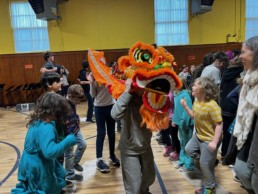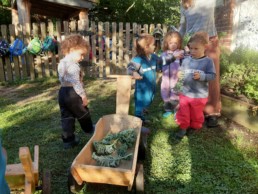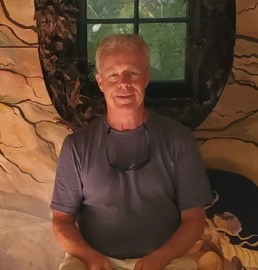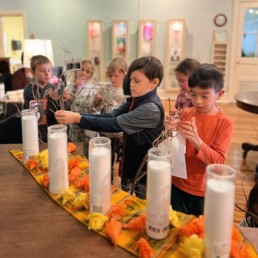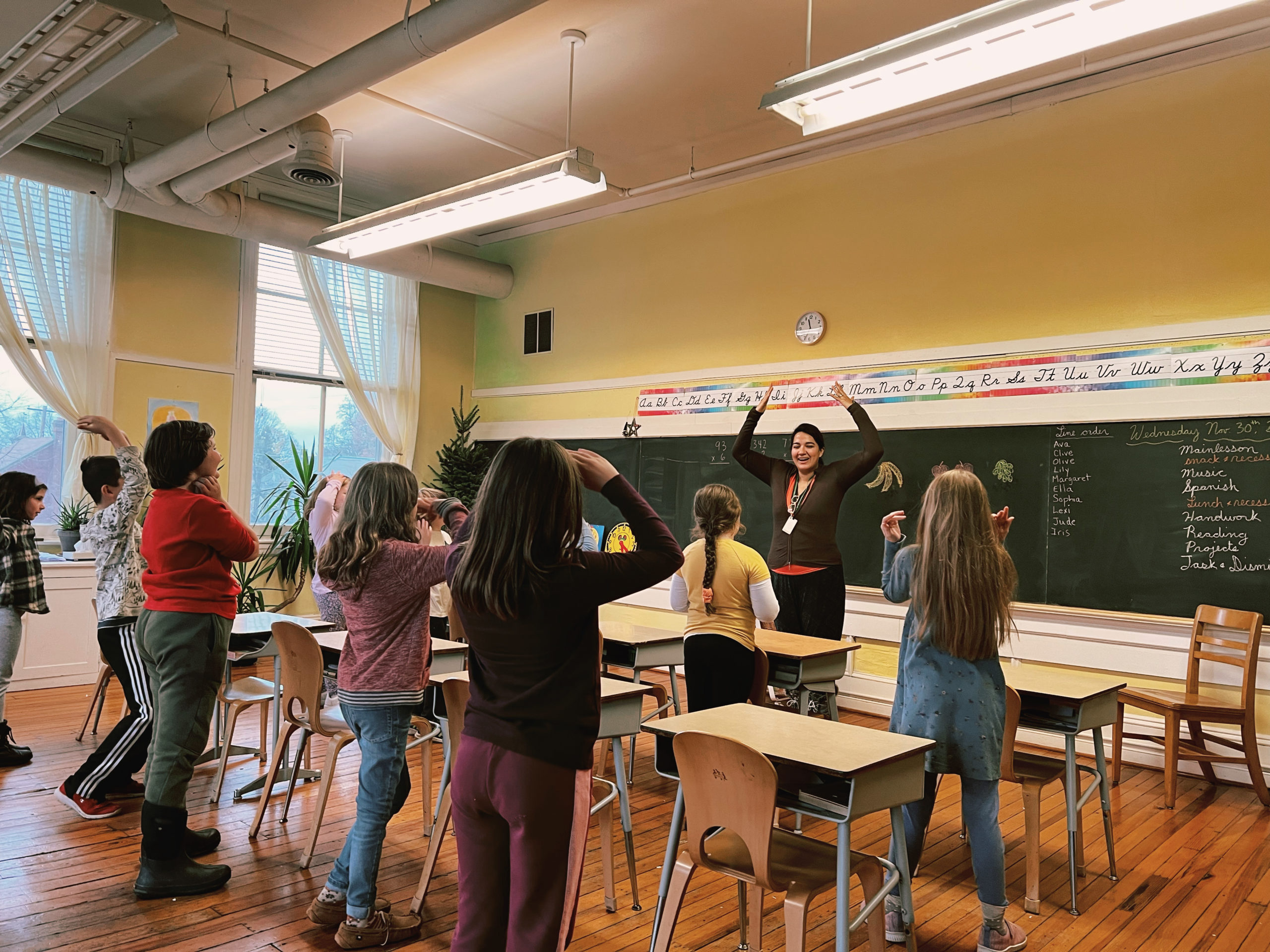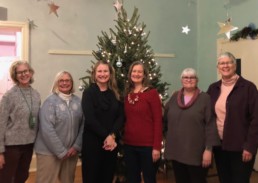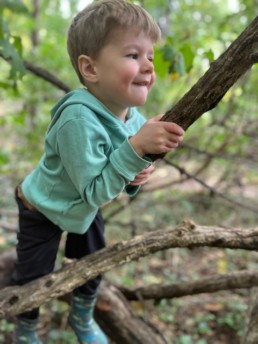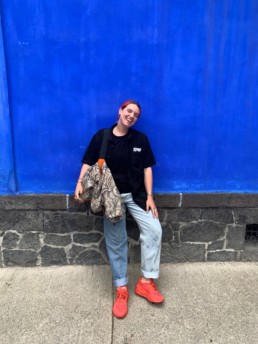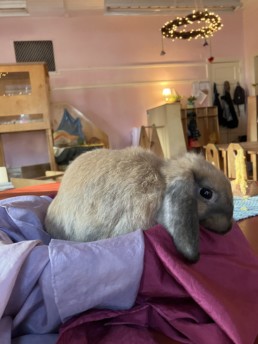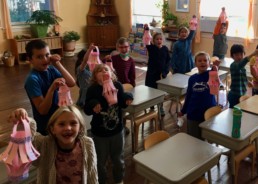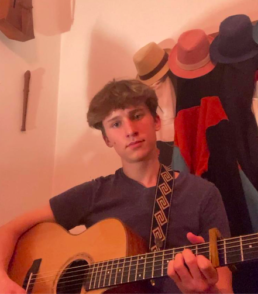Celebrating the Chinese New Year at SWS
Written by SWS Mandarin teacher, Hui-Ling Singer.
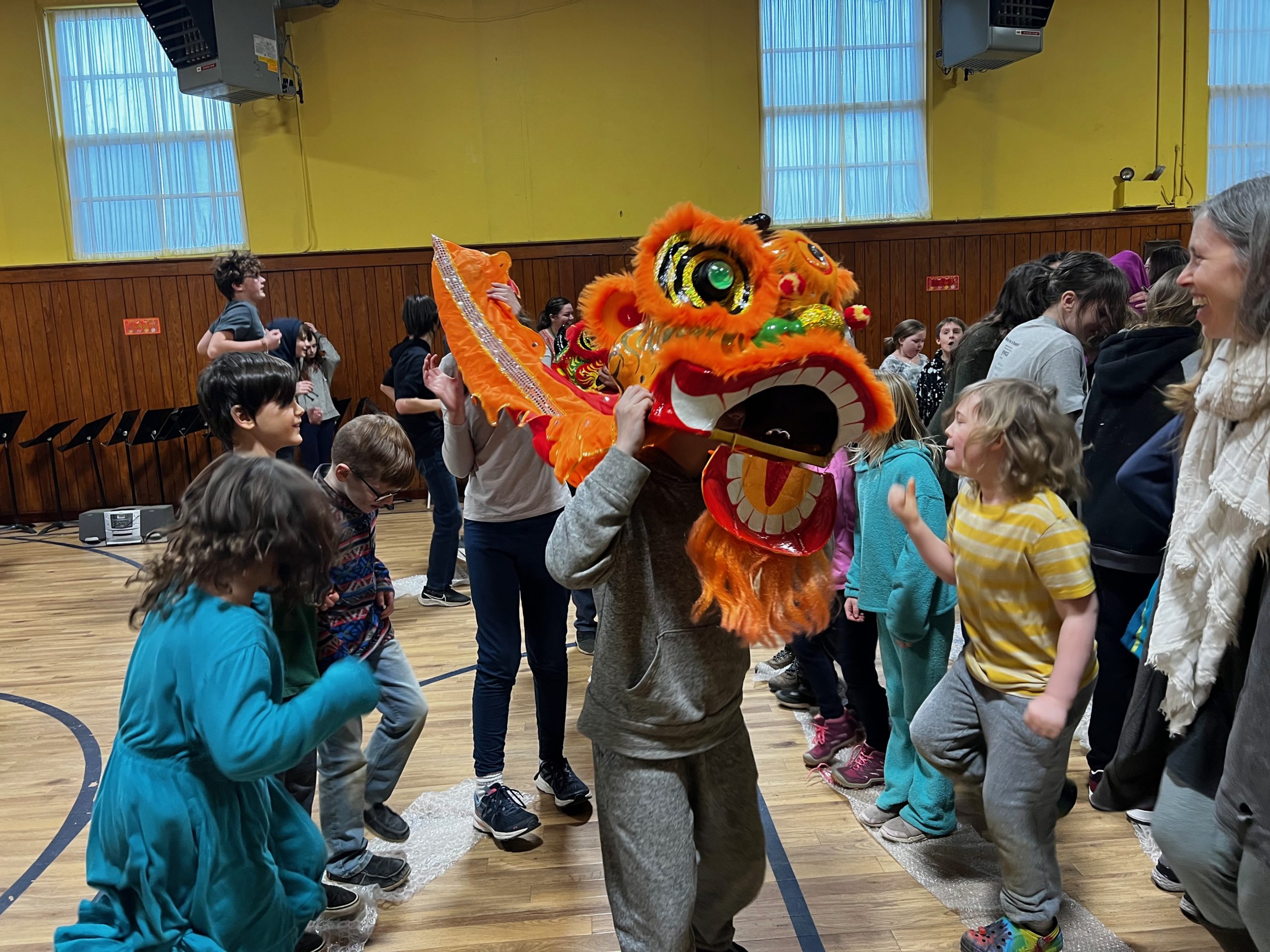
Chinese New Year is one of the most important Chinese Festivals. It celebrates the beginning of a new year based on the lunar calendar as opposed to the Gregorian calendar, which is the solar calendar used here in the USA. The first day of the Chinese New Year begins on the new moon which usually takes place between January 21st and February 20th on the Gregorian calendar each year. This year the Chinese New Year happened on January 22nd. Last year in 2022, it was on February 1st, and in 2024, it will be on February 10th. The Chinese New Year celebration lasts until the Lantern Festival which is January 15th on the lunar calendar and February 5th on the Gregorian calendar this year.
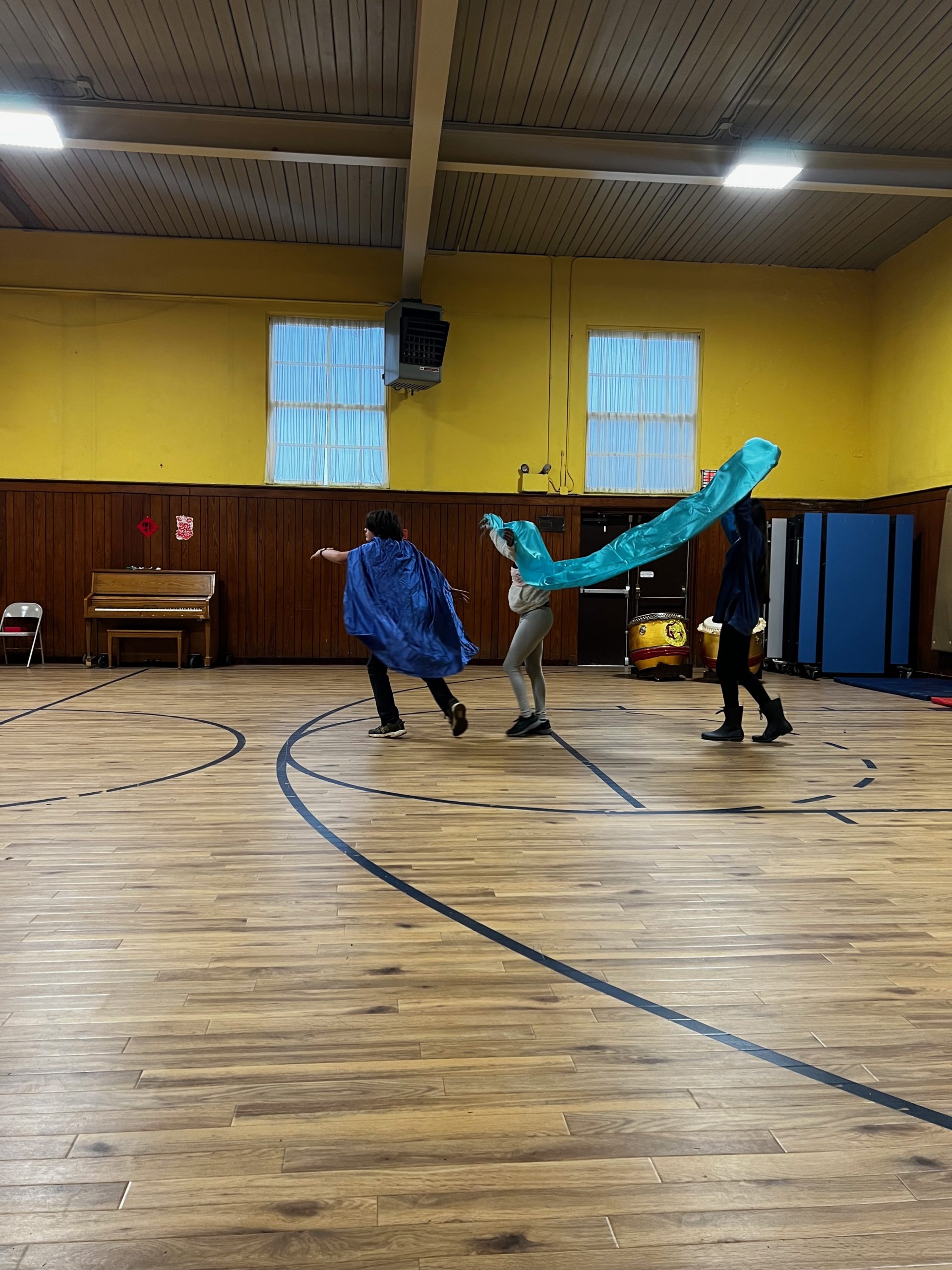
I feel very blessed to be part of the Susquehanna Waldorf School community that honors different cultures and all walks of life. Thanks to the support from our Leadership Council, DEI Committee, and the whole school, this year we were able to hold a very special assembly on Friday, January 20th to kick off the celebration for the New Year, the year of the Rabbit. Class 5 & 6 started the celebration by telling the legend behind the Chinese New Year, an Animal Called Nian (Year), followed by the very popular New Year Song from Class 7. A special moment was dedicated to Class 8 when the students received their Chinese names.
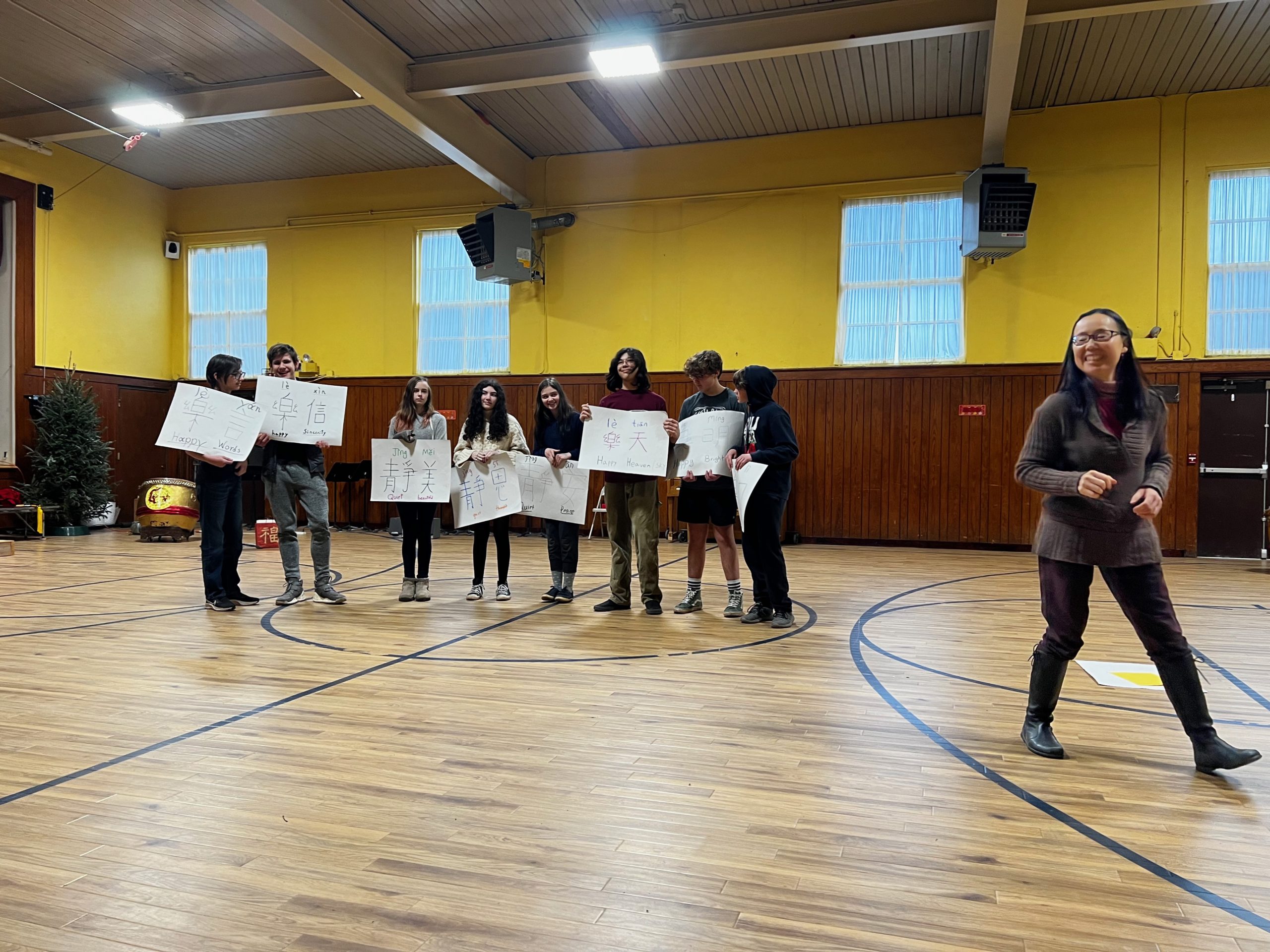
The highlights of the celebration were the Sword Dance and the Drumming performance by Kevin Chen, William Hinkson, and Rylee Hecht from CCAI (Chinese Cultural and Arts Institute in Harrisburg). The Sword Dance was the favorite for most of our students. The celebration concluded with the whole school jumping on the bubble wraps representing the sounds of the firecrackers, the Lion parade, more drumming from CCAI, and the students receiving the red envelopes with a dollar coin from Taiwan inside at the end. Special thanks to CCAI founder, Chen-Yu Tsuei!
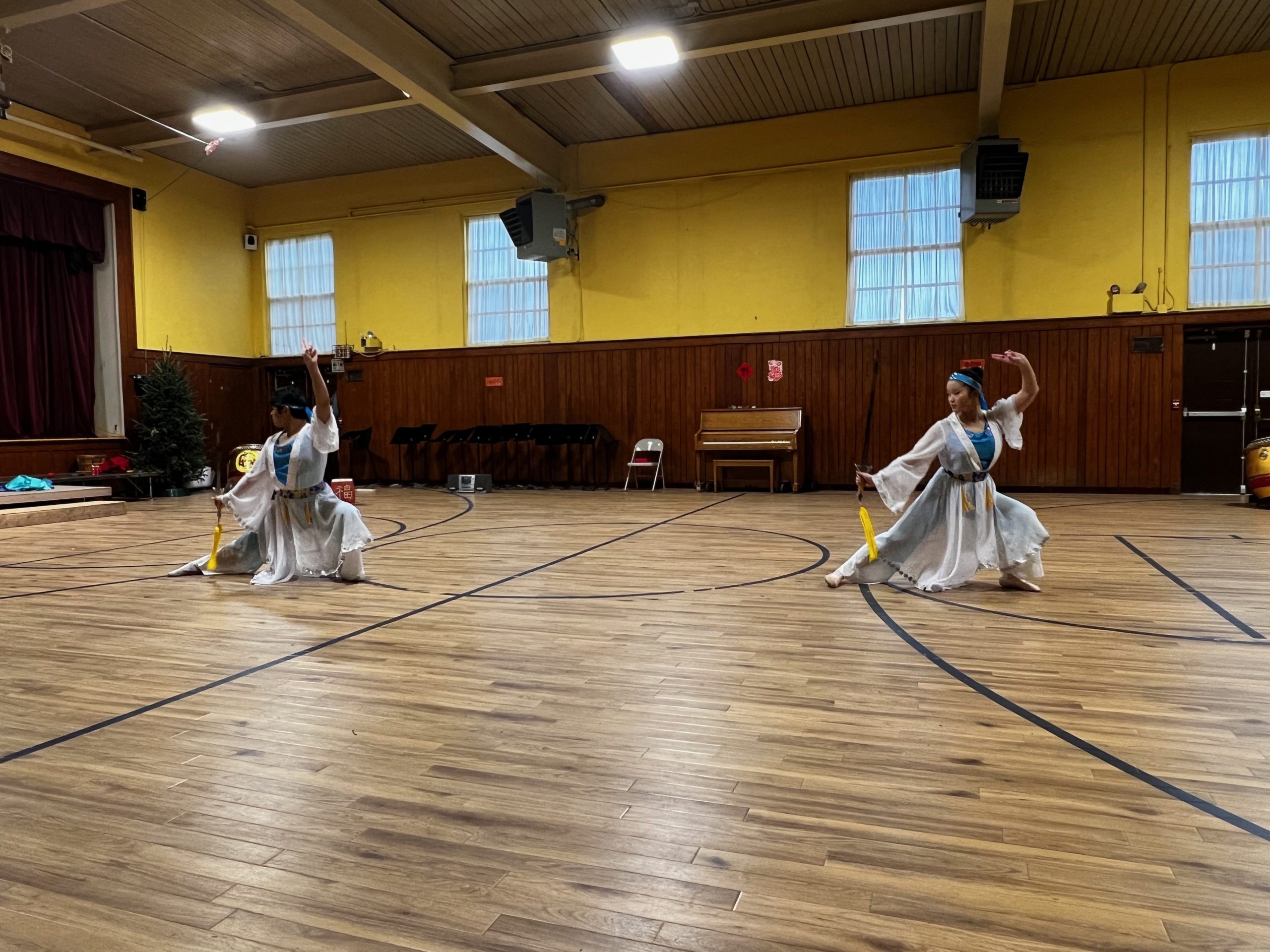
In addition to the Chinese New Year Celebration assembly, various cultural activities were also shared in each classroom. For example the story behind the 12 Chinese Zodiac Animals, paper cutting, lion head coloring, lantern making, and riddle guessing for the Lantern Festival, just to name a few. Some special Chinese New Year’s food was also shared, including Chinese New Year’s Sticky Rice Cake (see below for the recipe), dumplings, vegetable spring rolls, and mandarins. May the year of the Rabbit bring you and your family good health and lots of joyful blessings!
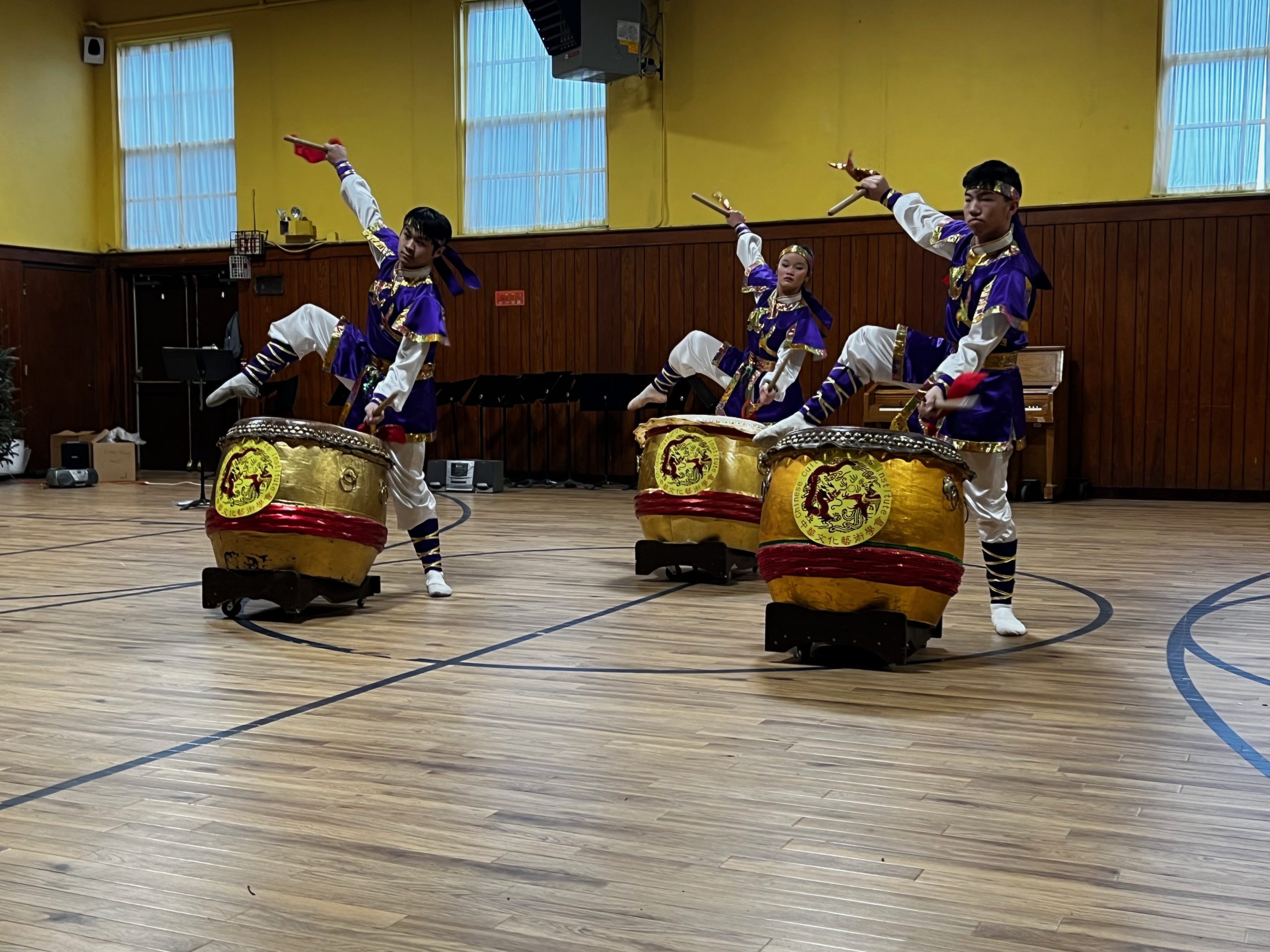
Chinese New Year Sticky Rice Cake Recipe
Chinese like to eat 年糕 (sticky rice cake) during the Chinese New Year. 年糕is pronounced “Nian Gao”. 年(nián) means “year” and 糕(gāo) means “cake”. 黏means sticky also is pronounced “nián”. 高 means high, tall or above the average is also pronounced “gāo”. Therefore, 年nián 糕gāo (sticky rice cake) is to symbolize this year will be better than last year.
Enjoy making this simple Chinese New Year sticky rice cake recipe and enjoy the 年nián 糕gāo! May the rest of your 2023 and the year of the Rabbit bring you and your family good health, lots of joyful blessings and loving memories!!!
1 lb glutinous rice flour (can be found in any local Asian markets)
3 eggs
¼ lb butter (room temperature)
2 cups sugar (I usually use a lot less, but you can follow the recipe the first time and adjust it later.)
1 tsp baking powder
1 tsp vanilla extract
3 cups milk (any kind of milk will do)
½ cup shredded coconut (can be eliminated if you don’t like coconut)
Mix the butter and sugar. Add the eggs and milk and mix well. Add the rice flour, baking powder, and vanilla extract and mix well. Add the shredded coconut and mix well.
Pour the mix into a greased 9”x13” pan. Bake at 350 degrees for about 50 to 60 minutes or until the surface turns golden brown. (Your kitchen is going to smell so good.)
Stepping Stone Nursery: From Garden to Table
Written by Stepping Stone teacher, Tabea Steinbeisser-Fitz
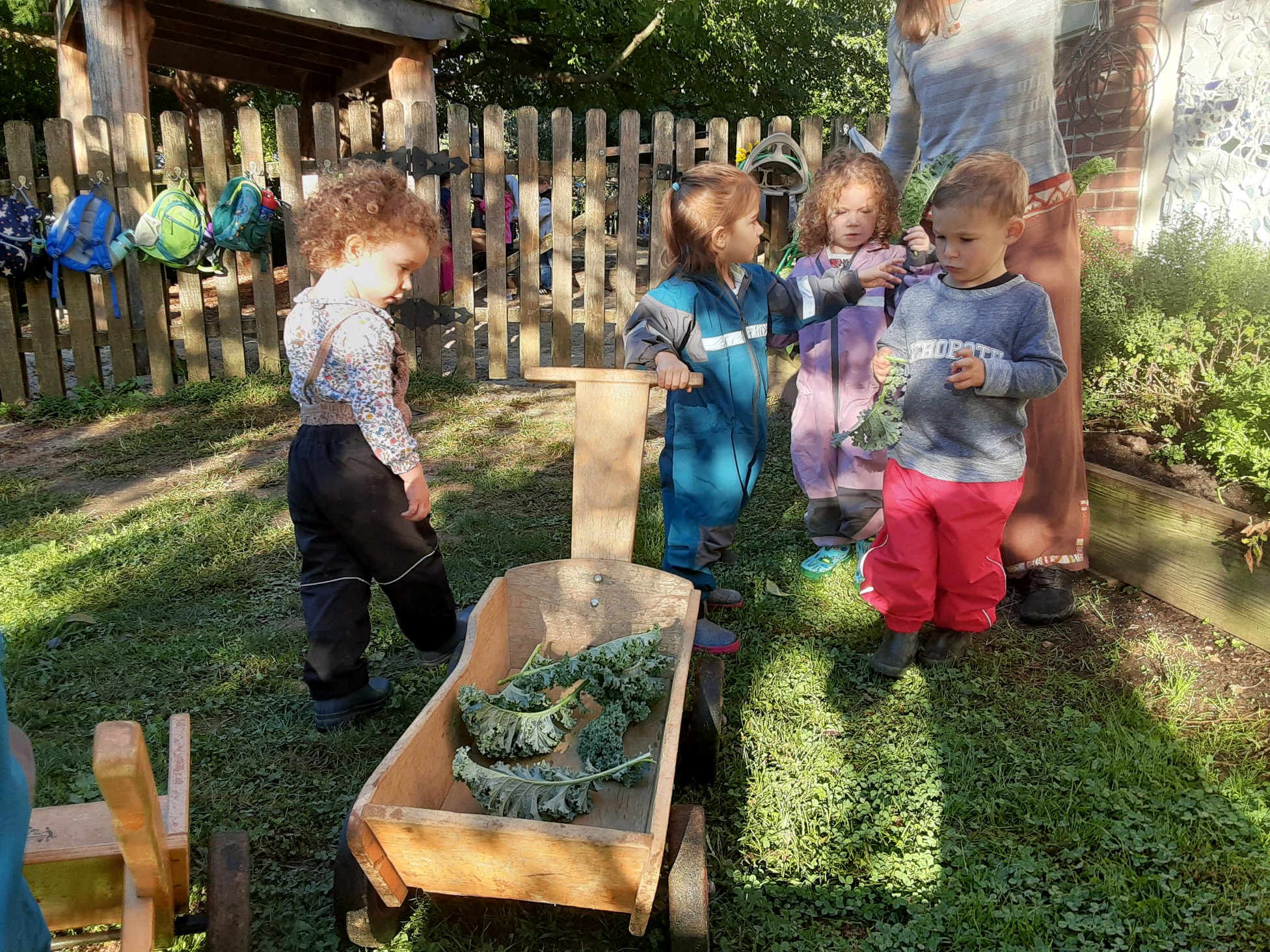
When the Stepping Stone children planted their vegetable garden last spring, we had no idea we would create a whole new menu in October. Thursday’s beloved snack is made with our homegrown baked potatoes, kale chips, and peppers topped with fresh parsley!
In the back row of our 3 garden beds, we planted mums in all kinds of colors. The children were busy planting potato seedlings, young kale, pepper plants, parsley, and marigolds for silk dyeing in early spring. The children loved when we got the watering cans out. Not only did the plants get a good soaking, but the children did too. We weeded and were delighted when we found worms and bugs.
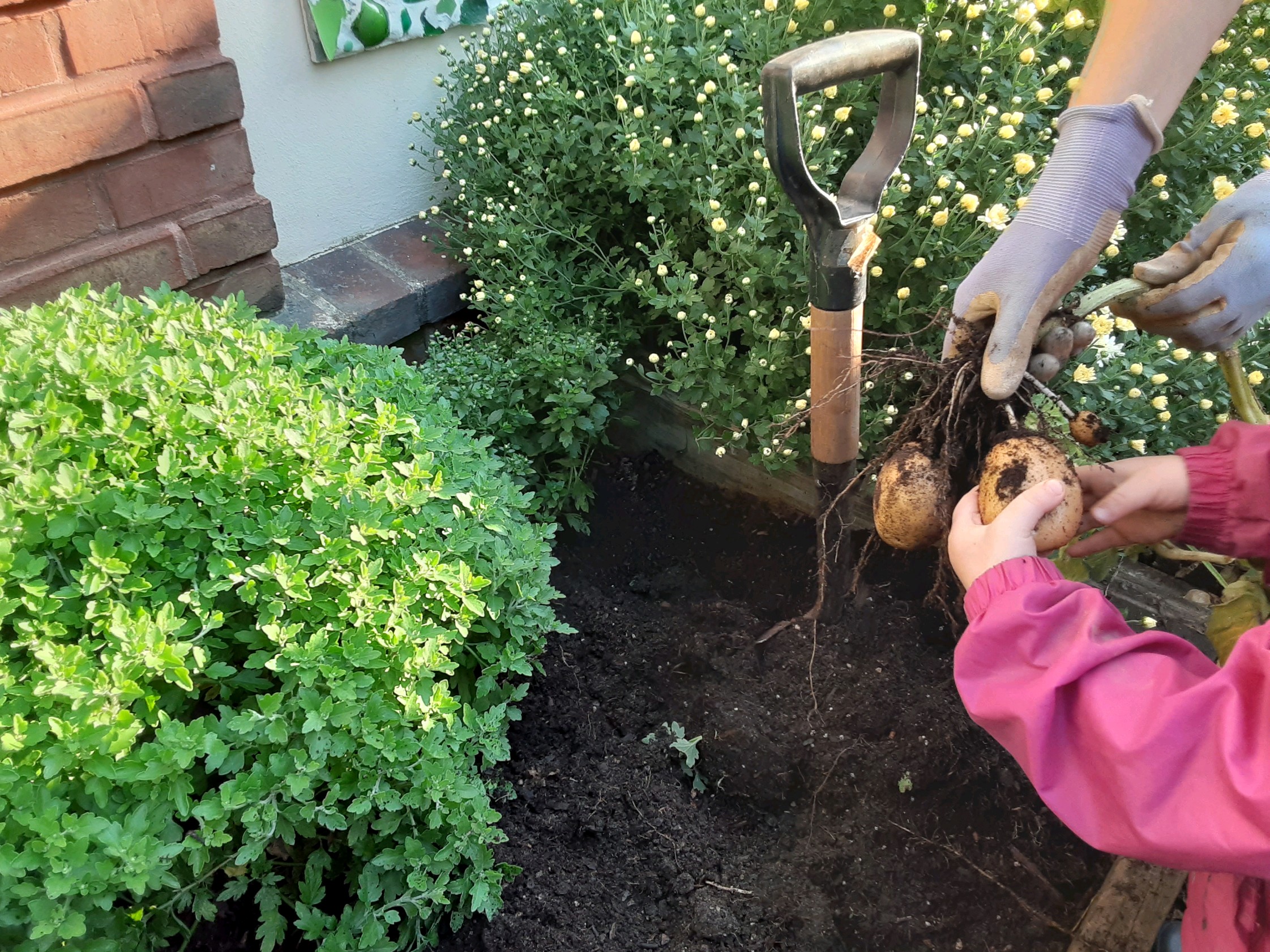
After a long summer, we returned to find tall and mature plants, ready to be harvested. And harvest we did! From digging up a big crop of golden potatoes to weekly picking of kale and orange peppers, we eagerly tended to our garden. We loved picking mums and marigolds and made beautiful bouquets for our office staff and front desk. The marigolds made a deep yellow dye for our “Golden Capes of Courage” at Michaelmas. All this work filled us all with purpose, joy and gratitude for Mother Earth.
We held a Thanksgiving feast in November with everything we could find in our garden. The children brought herbs, flowers, seeds, and vegetables from their gardens at home. We gathered around the nicely arranged, full harvest table and touched and smelled the different herbs and flowers. We said a special gratitude prayer to Mother Earth for feeding us so well.
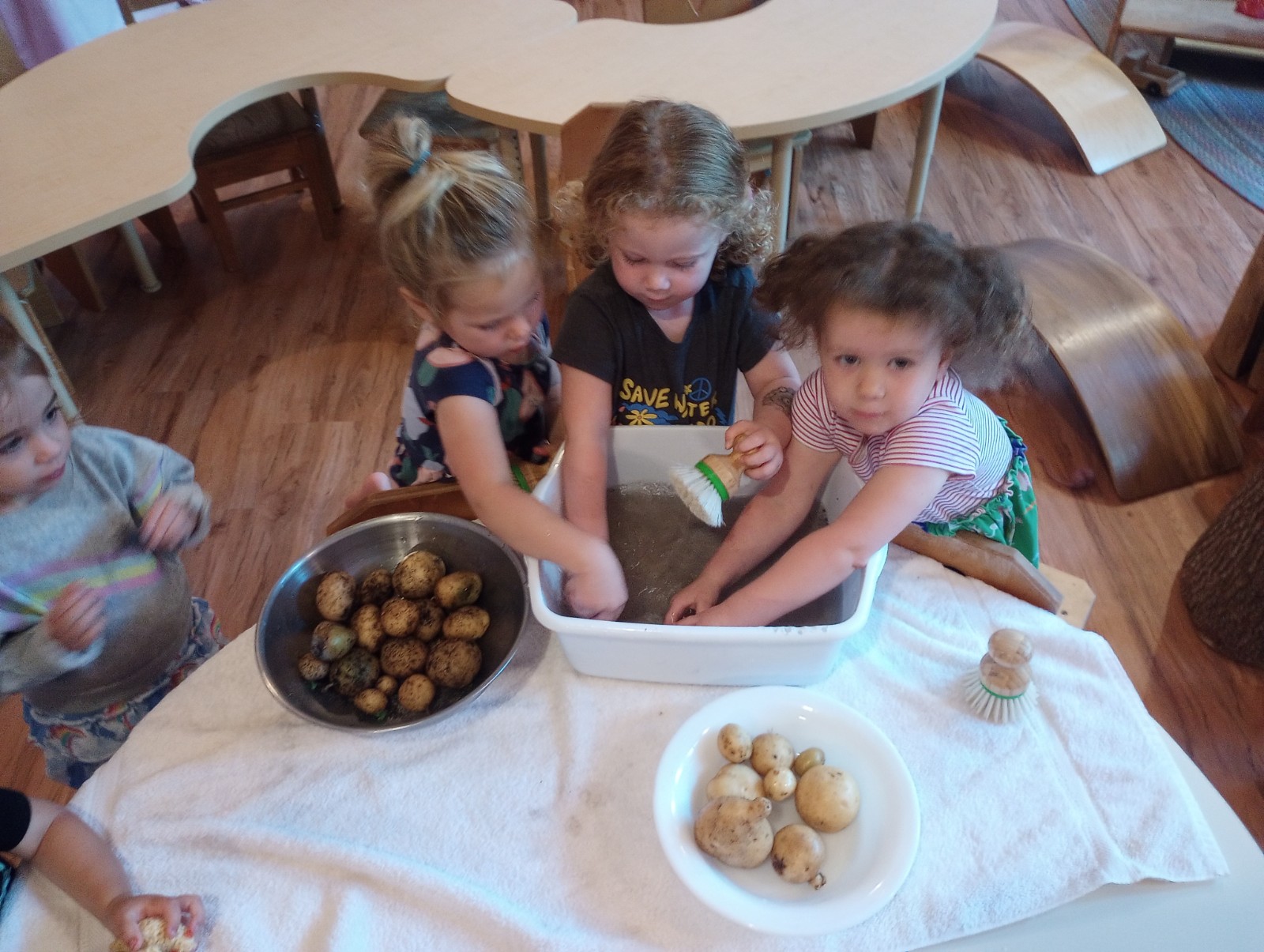
There is nothing more tasty and rewarding than making a meal from our own garden. It begins with harvesting and continues with scrubbing potatoes and washing kale leaves. This is work the children very much love (anything with water is great fun!). The smell of the baked potatoes and kale chips even drew some visitors to our classroom. To our amazement, our homegrown vegetables lasted until almost Christmas!
Thanks to a skilled parent who built and installed a beautiful new garden box and the class parents who donated spring bulbs, we engaged in a new garden project: creating a spring garden. The children helped to plant each bulb and cover it with dirt with great care. We were busy shoveling mushroom soil into the new garden box for weeks. It was a joyful task for all. We look forward to spring and we're excited to learn what kinds of flowers will grow, and how they will make our playground a more welcoming, colorful, sweet smelling, and beautiful place.
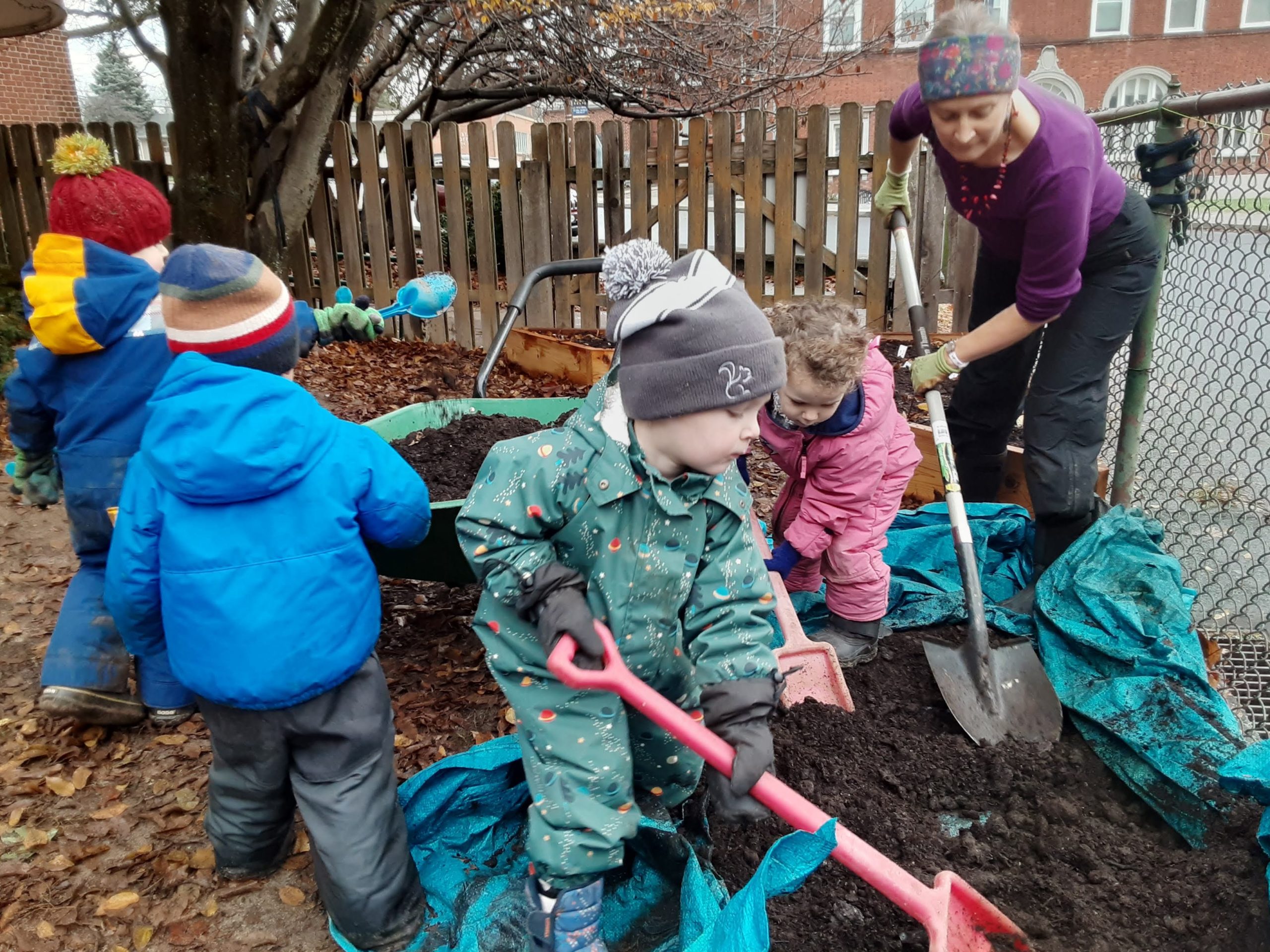
It fills my heart with deep joy and gratitude to be able to live off of our own garden, participate in and witness the seasons year-round, and be nourished by the gifts of the earth. Likewise, it calls each of us to take care of what is given to us, to become participants and stewards of our gardens, and to appreciate the hard work of farmers and gardeners all around the world. It is a blessing to share this work with the Stepping Stone children.
35th Anniversary Spotlight: Alum Parent and Board President Dave Knapp
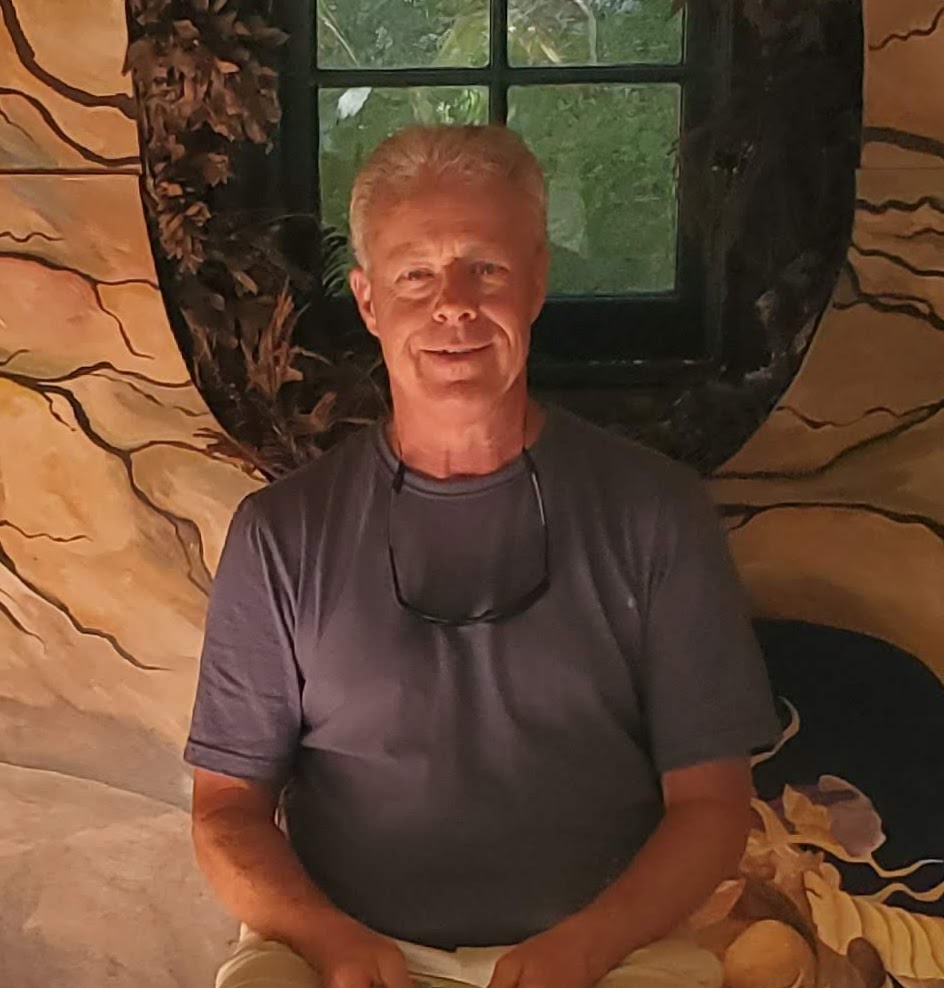 We are celebrating 35 years of Susquehanna Waldorf School this year! In honor of our 35th anniversary, we’re interviewing members of our community to share why they love SWS. Alum Parent and Board of Trustees President, Dave Knapp, sat down with us to talk about his experience at SWS.
We are celebrating 35 years of Susquehanna Waldorf School this year! In honor of our 35th anniversary, we’re interviewing members of our community to share why they love SWS. Alum Parent and Board of Trustees President, Dave Knapp, sat down with us to talk about his experience at SWS.
What led his family to SWS...
My children are Tim and Mike and they graduated in 2001 and 2004. Tim was in the first class to go to 8th grade. They attended preschool through 8th grade. They were at SWS as long as they could be.
We lived near SWS and my wife was participating in a breastfeeding support group and she had heard about the school there. She suggested it to me and I asked, “why would we want to go to a private school?” We had both gone to public school and did fine. I had concerns about how to afford the school. Then we came to an open house with Miss Linda and Boel Neville, both of whom are organizers of the original school. They just swept Tim into the room and embraced all of us. I was enchanted. Even as a guy who wasn’t easily enchanted at that point in my life, I was like “wow, this is pretty special.” Those two teachers were very special. There was a tangible welcomeness to the school. I remember the feeling that my child felt comfortable. He’s not someone that jumps in, he’s a watcher. He just got swept into it and was comfortable from the beginning which was very impressive to me. It really hasn’t changed. It’s only gotten better.
What made your family decide to stay through 8th grade?
Miss Linda was Tim and Mike’s teacher and the first student report that we received was incredible. She knew him better than I knew him at that point. It was so clear that she was completely aware of who my child was. That just brought tears to my eyes. I knew he was in the right place. Kindergarten was the next step and just as good. It wasn’t even a question after that. We just knew they were in the right place.
How did Waldorf education impact your children?
Tim is an architect in Philadelphia. The art part of Waldorf education really contributed to that. He’s a really talented person in terms of being able to design buildings. Mike is a senior managing director for a consulting group and he lives in Austin. I think people wonder about Waldorf schools, like reading and math. Well, Tim's an architect and Mike was a business major. They were both academically and socially ahead of their peers in high school. They both went to good, independent colleges. Colleges love Waldorf students. Every admissions director I talked to said that was a bonus on their resume. What I'm most proud of, though, is the kind of human beings they are. They’re really good people in addition to having good jobs. I feel really proud and happy that this school helped get them to that point. I think our kids help the world.
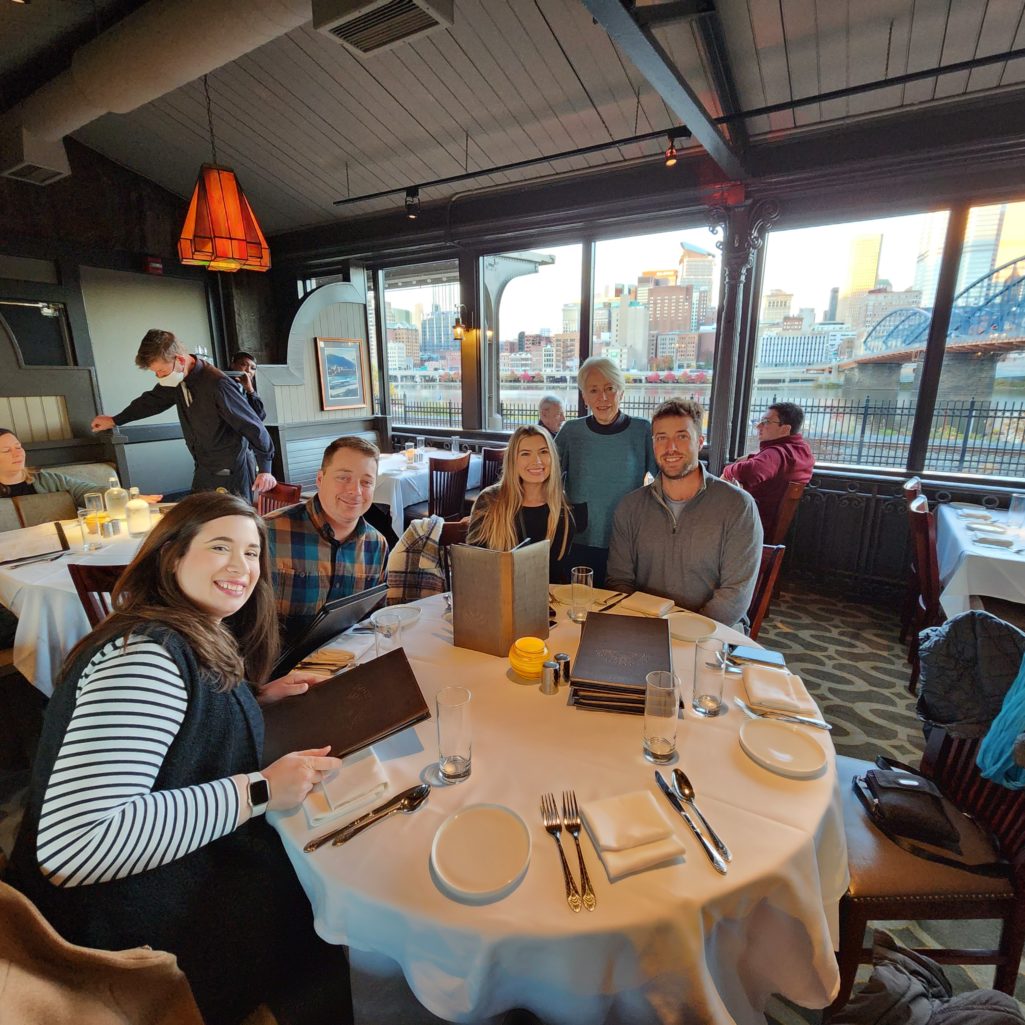
How did SWS impact you as a parent?
It really had a profound effect on me and only in hindsight can I see it. No one is taught how to be a parent. We have role models. Good or bad depending on the family. I was fortunate to have good ones but in this case, we also had the role model of our school. I often say that this school has been as important to me as it’s been to my kids. And that’s high praise because it’s been spectacular for my kids.
I got involved in the board probably 2 years into my children being students. I was board president within a year after that. It was my first experience really giving to something. I found volunteerism at SWS and that has completely changed my life. The greatest gift that anyone can ever receive is the gift of giving. I’ve come to really believe that. I think part of the success of this specific school is that you have involved parents. Raising a child takes a community. It takes a village. The participation of parents helps the students, helps the teachers, and it also helps the parents. By participating, parents learn how to be better parents. I was fortunate that I was encouraged to be on the board here and grateful to have been invited back last year. The school has made me a better parent and a better person. The community supports our children and our parents. The school and the children are better for that.
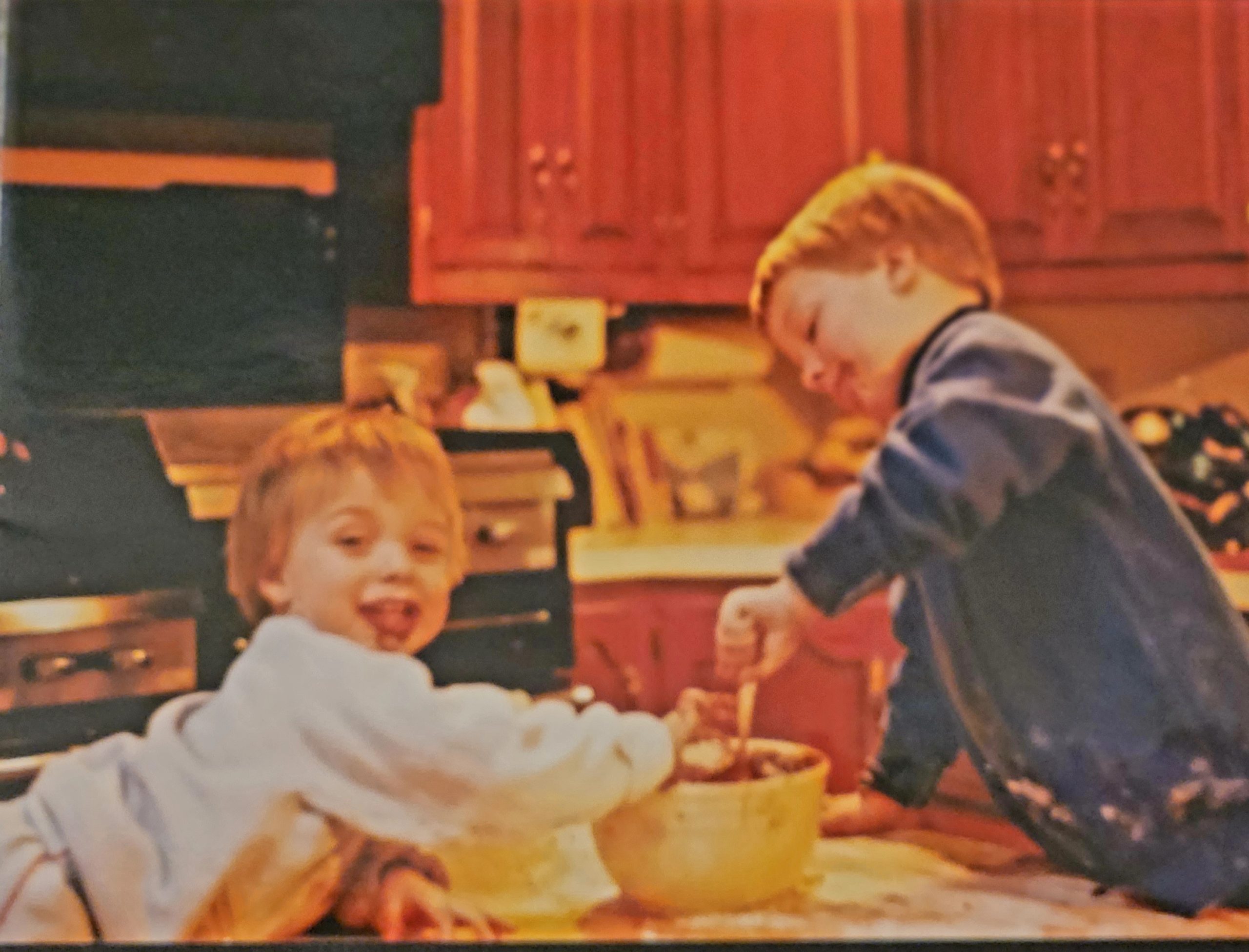
What makes SWS special?
I’ve often said that the single greatest thing we can provide for our children is self-confidence. If we can show them how to believe in themselves, all is possible. I feel that both of our boys have that. I think Jen and I helped to provide that, they came with that out of the womb, but SWS supported and nurtured it. I liked the way Lili put it: that every part of SWS (teachers, staff, parents) all support our children to become the best person they were meant to be. I also think critical thinking, learning how to work together, and believing deeply in themselves is crucial. We live in a world that is focused on separation and not working together and this school is all about working together. I think that we’re literally sending kids out into the world who can make the world a better place.
ALMA (Soul) of the Language
Written by SWS Spanish Teacher, Fernanda Brito-Muñoz.
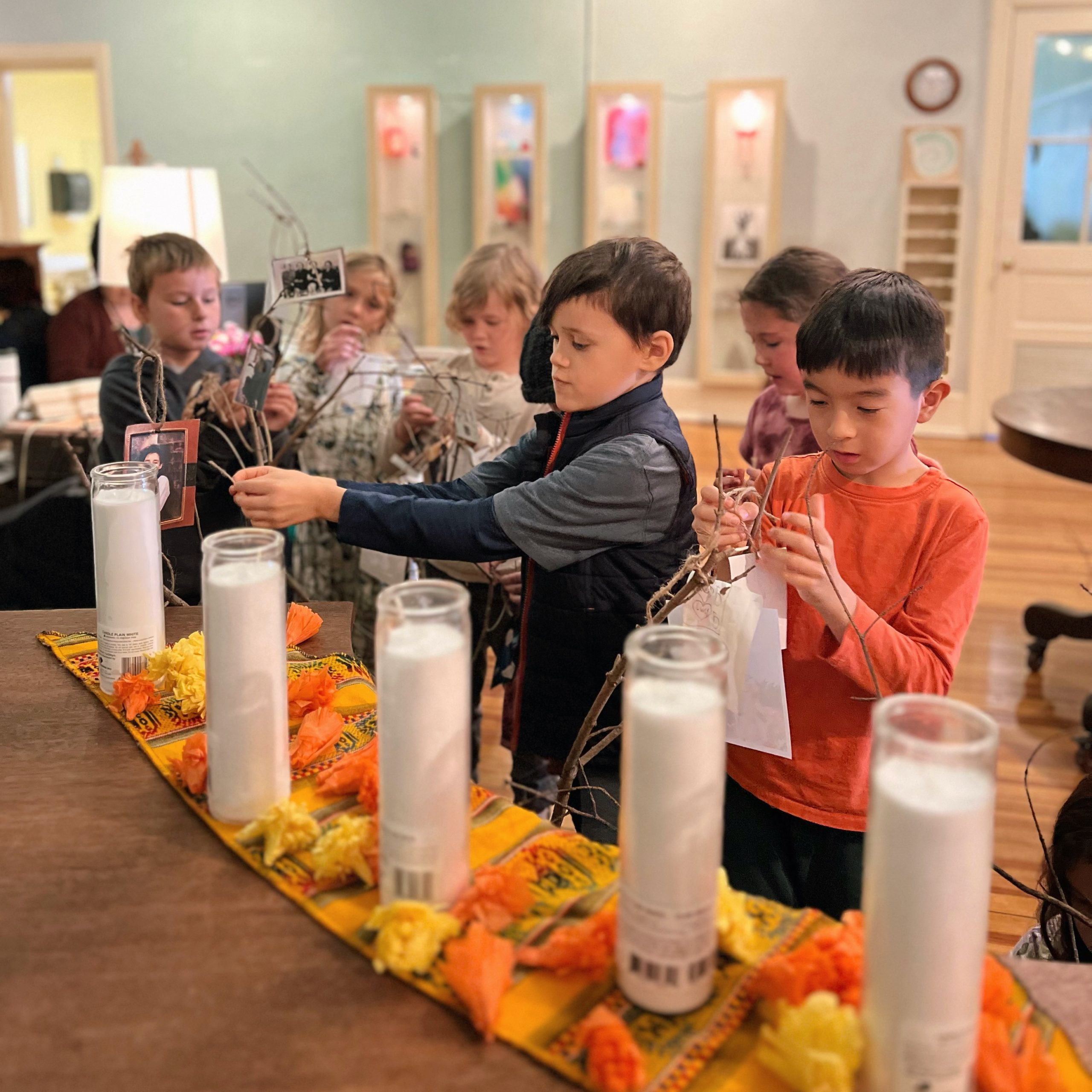
As I often question the purpose of things, I think about my role as a teacher of language. We all know that brain development is enriched when we learn a new language, but why is Spanish so important? It is crucial as my mother language, but why do young children benefit from learning Spanish? An article from 2019 declares that Spanish is the second language most spoken in the world after Chinese. Our students at SWS are very lucky to get both languages in their education beginning in first grade. Spanish has native speakers in over 44 countries. The most important thing to me is to help children and the entire community to see how, when we open our minds, we can realize that people that speak other languages are as smart, unique, and intelligent as English speakers.
"Learning another language is not only learning different words for the same things, but learning another way to think about things." - Flora Lewis
I teach more than the language as vocabulary and memorization, but also the culture. This way students can understand the language as a way of thinking and open their minds to different cultures, making this world more inclusive and diverse. That is why Oliver Wendell Holmes, Sr. said “every language is a temple, in which the soul of those who speak it is enshrined.” Even for me, when I am speaking in English, I feel as if another soul is speaking that is different from when I speak my own language. I feel my inner child flourish. That is why it is so important to learn another language at an early age. This way the language seems natural and becomes part of your whole personality.
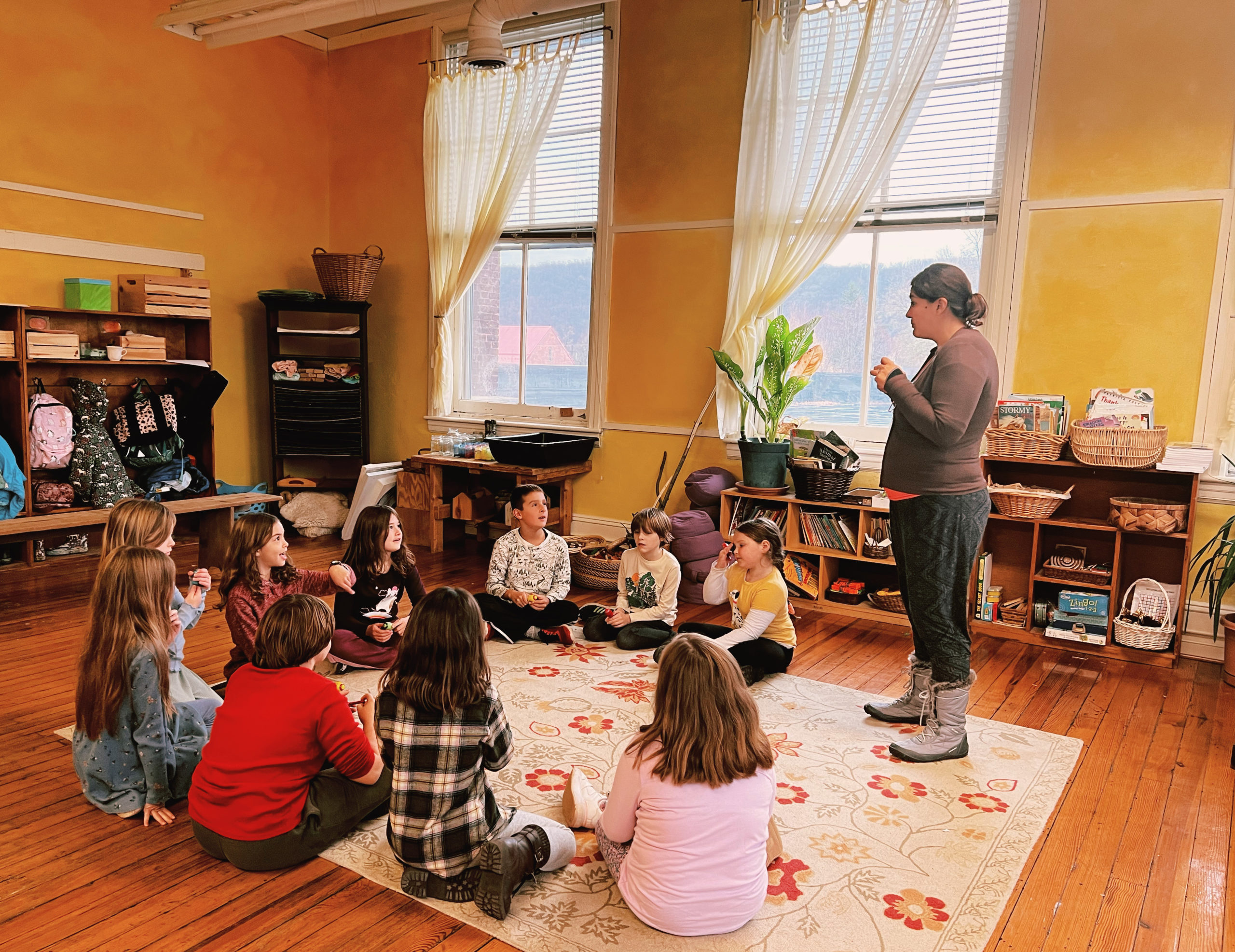
“Each language penetrates us differently and reveals human nature in a different way, which is why we must complement the effect of the mother tongue with other languages.” - Rudolf Steiner
As a teacher I am giving all of who I am, with all of my culture, traditions, and history. When I am teaching colors, gratitude, and happiness, I give others a piece of myself through exhibiting these characteristics, my culture, and all of who I am. Given that Spanish speakers are the 2nd largest population in the United States (Mexico has the largest), and projections suggest that by 2050, 1 in 3 people will speak Spanish (including bilingual people), I feel a great responsibility and honor to teach my language.
https://www.thoughtco.com/spanish-language-facts-4136754
https://www.waldorflibrary.org/images/stories/Journal_Articles/nzjournal_15.1wiechert.pdf
https://www.forbes.com/sites/soniathompson/2021/05/27/the-us-has-the-second-largest-population-of-spanish-speakers-how-to-equip-your-brand-to-serve-them/?sh=5bd84957793a
Leadership at the Susquehanna Waldorf School
Written by Melissa McIntyre
The leadership of our school is shared among the members of the Board of Trustees, the Leadership Council, and the Parent Guild. These groups work through collaborative decision-making and consensus. Parent input on important school issues has a formal channel in the Parent Guild Representative on the Board. Input from parents is sought and encouraged.
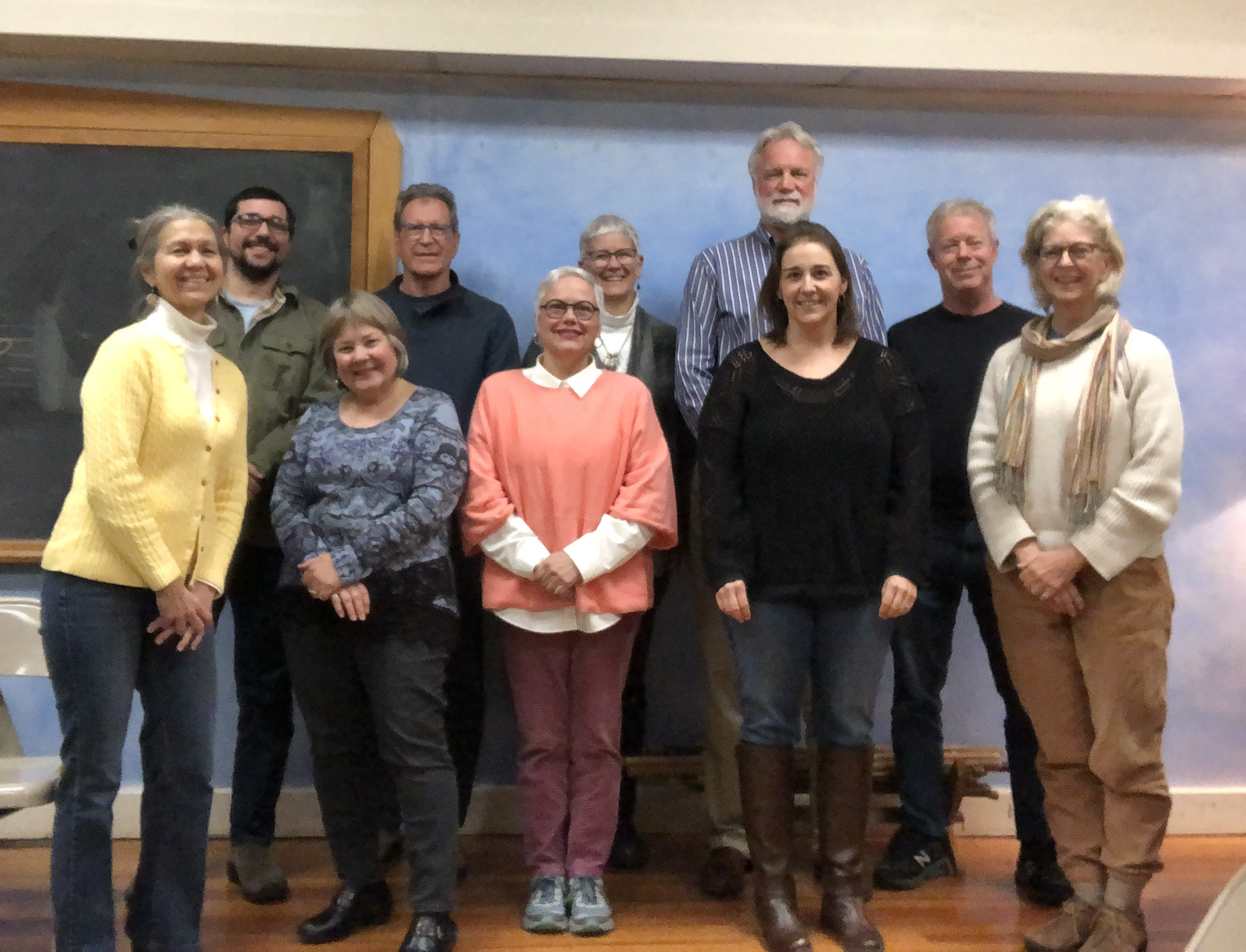
Board Of Trustees
The responsibility of the Board of Trustees is the long-term fiscal and legal sustainability of the school. The Board keeps the bigger picture alive. Its focus on the mission and vision of the school and its study of Steiner’s indications for Waldorf education and the Threefold Social Order allow it to undertake strategic planning and to measure the work of the school against its desired ends. The Board of Trustees holds regular monthly meetings to discuss the school's legal and fiscal health and to further strategic planning. Each meeting begins with an open session, during which all members of the SWS community are invited to participate. Board meetings are on the third Wednesday of each month at 6:30 pm in the Music room.
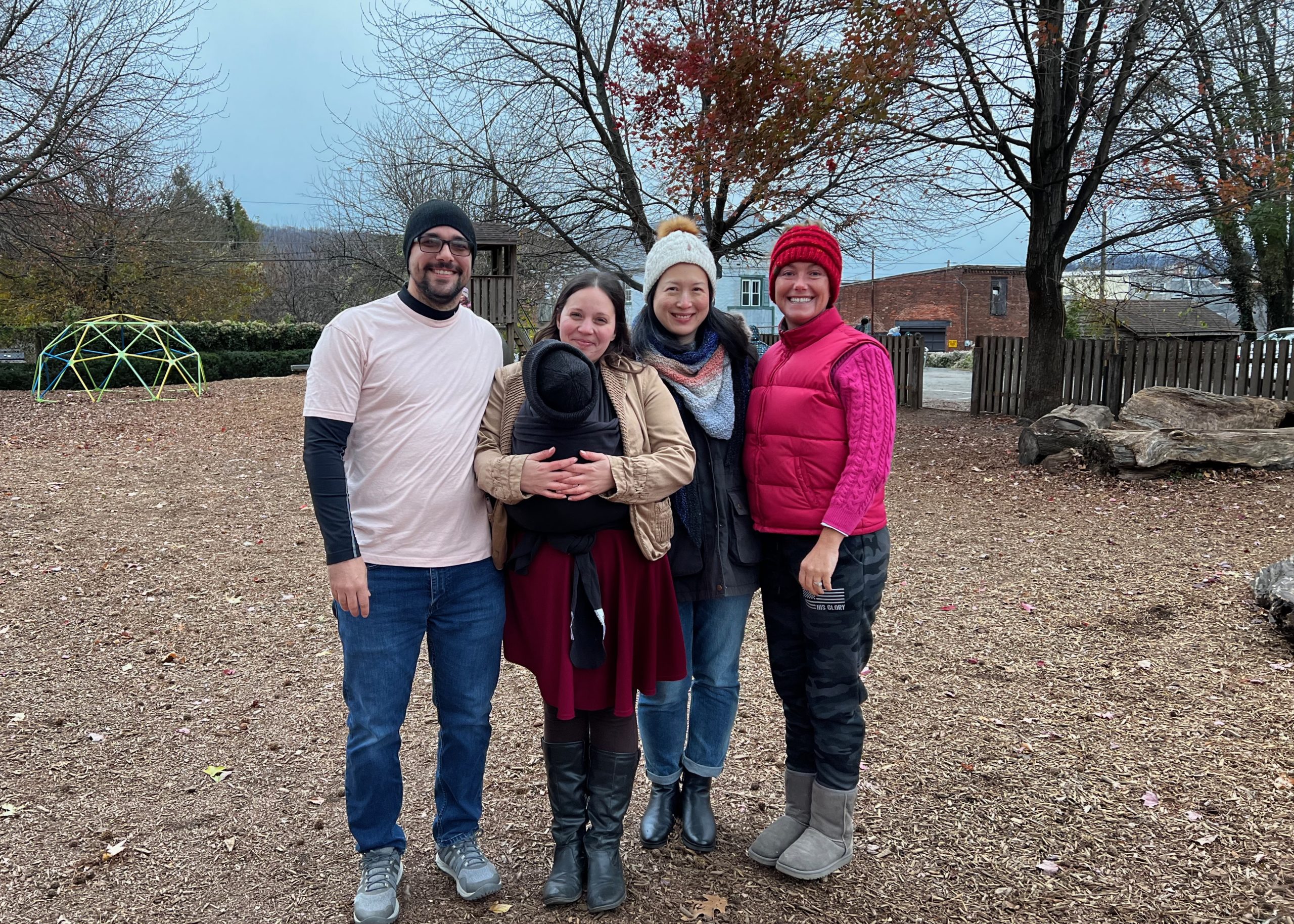
The Parent Guild
The Parent Guild is the collective parent body of the Susquehanna Waldorf School. As a community-building organization, its mission is to promote parental participation in the life of the school. The Parent Guild supports the school, fosters communication, and builds community through actively participating in planning social fundraisers such as the Winter Faire and the Auction/Gala. All parents of currently enrolled students are members of the Parent Guild. Every class in the school should have one class representative active in the Parent Guild, which meets on the third Sunday of the month at 10 am.
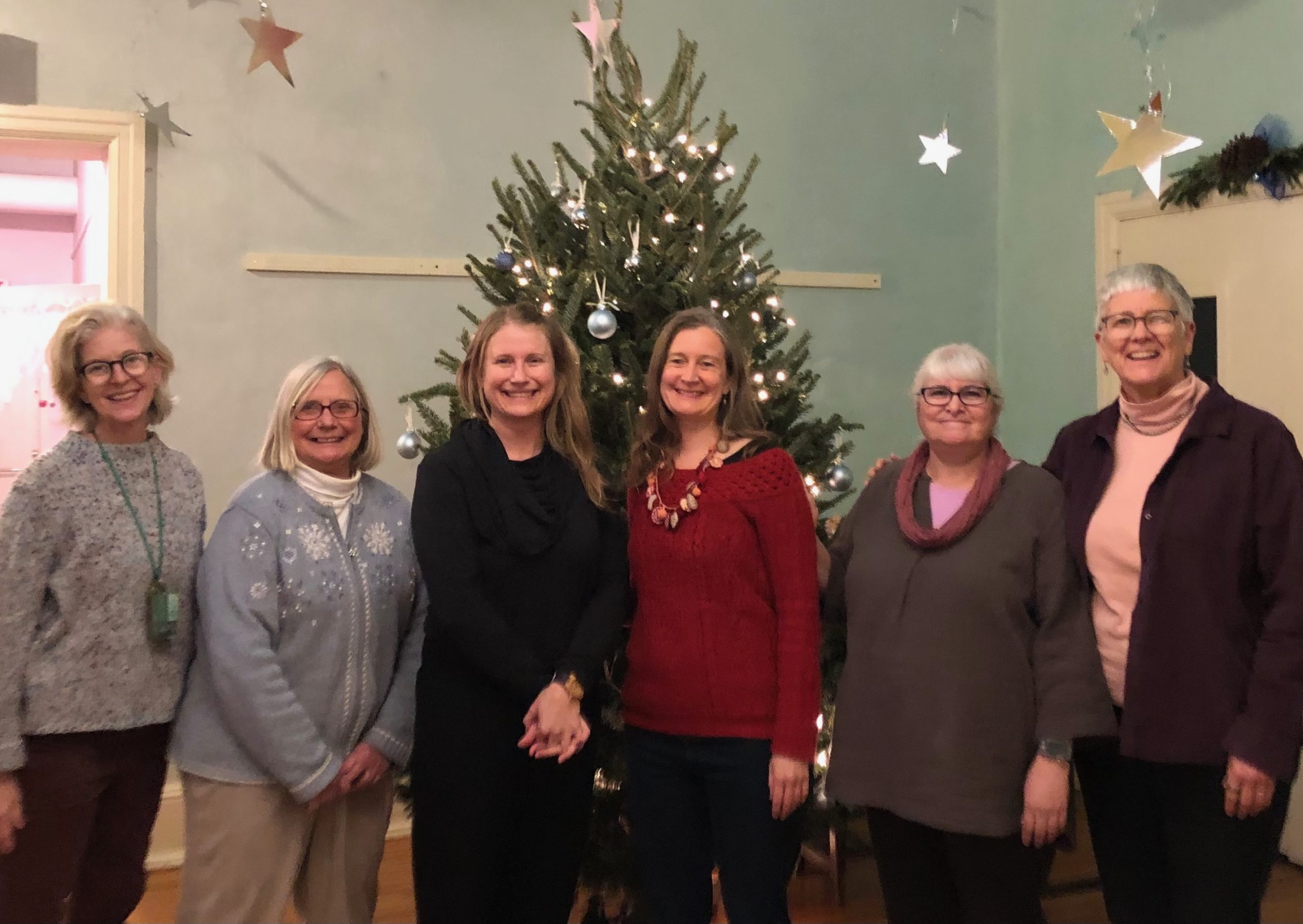
The Leadership Council carries the administrative and managerial leadership of the school and is responsible for decision-making and oversight in all matters concerning day-to-day administrative and pedagogical life. The Leadership Council membership consists of Pedagogical Co-Chairs and Department Chairs. The Leadership Council meets weekly and with the faculty during the after-school College meetings. If parents have a question or concern about any aspect of the school, they are invited to first contact the Leadership Council at LC@susquehanna.org .
Risky Play in Waldorf Education
Written by Bluebell Kindergarten teacher, Kerry Clements.

Several years ago while on the playground with my kindergarten class, I was chatting with another teacher who was new to the school and to Waldorf education. She was watching with curiosity as the students ran full speed, chasing each other with delight. Before joining our community her background and experience had been mostly in the public schools. She turned to me and asked, “Are the parents really okay with this? Running, chasing, climbing trees? It seems risky.” I answered her with, “Yes, there is some amount of risk, but the benefits far outweigh the risks.”
Risky play, forest play, rough and tumble play. Why do we support and make space for this type of play? What are the children learning and how does it serve them?
"Adventurous, child-initiated play is full of opportunities for developing creativity, invention, resilience, and problem solving." - Joan Almon, The Value of Risk in Children’s Play
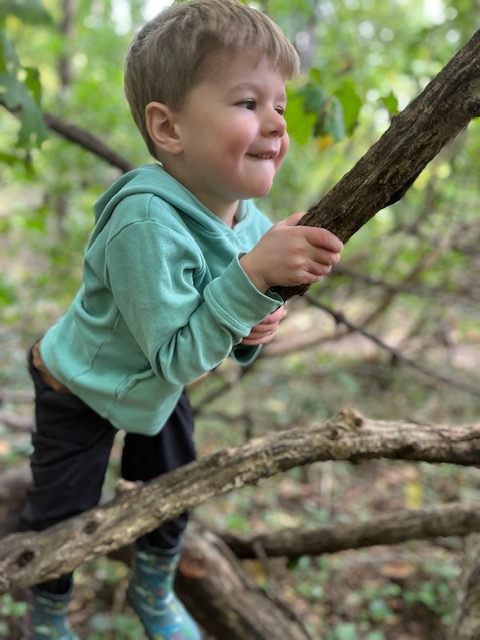
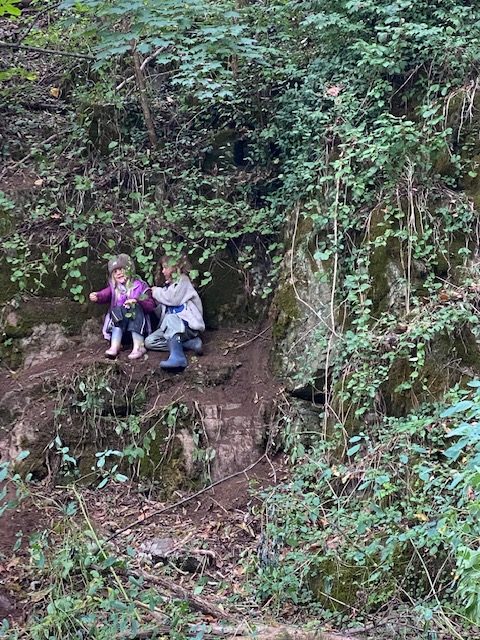
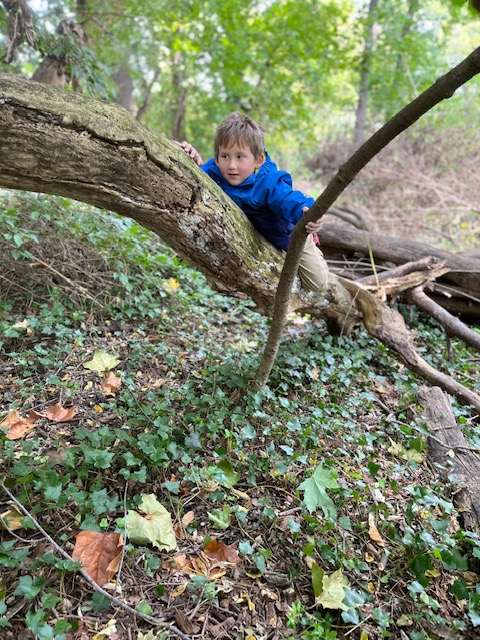
When we allow children to engage in risky play, play that involves heights, high speeds, rough and tumble play and “disappearing” play, we give children the opportunity to grow and develop, physically, emotionally and cognitively. Forest play and tree climbing are great examples of play that help children build body awareness, coordination and balance. When a child is testing a branch, jumping from a tree or playing alongside the river, they are assessing risk and problem solving. They are also developing self-knowledge and self trust through every experience of success. It is such a joy to watch a child in their first attempt to climb a tree. Timid and unsure, moving slowly, assessing with each step if they are safe. With each branch their confidence soars until they exclaim with excitement, “I did it, did you see me!?” And with each fall our children also build resiliency.
"By NOT allowing a child to take risk, we’re actually creating a child that is more unsafe.” -Angela Hanscom, Balanced and Barefoot: How Unrestricted Outdoor Play Makes for Strong, Confident, and Capable Children
But risky play is risky, or else they wouldn’t call it risky play. How do we, as teachers, parents and caregivers make space for this type of play? What tools can we give to our young ones to help them in their discovery of themselves and the world? One of the most important aspects to consider is our presence and our language. “Be careful” is one of the most common phrases we utter to young children and, unfortunately, it carries very little meaning and offers no guidance. So what can we say instead?
Here are some great ideas from BackWoodsMama.com on what to say instead of “be careful”:

Risky play is an essential component of child development. It builds cognitive skills, fine and gross motor skills and spatial awareness. Children are learning risk assessment through climbing trees, balancing on rocks and logs and running down hills. They are building confidence and knowledge of their bodies and of their capacities that will serve them for a lifetime.
"When children are faced with risk, they rise to meet and overcome it." - Joan Almon, The Value of Risk in Children’s Play
35th Anniversary Spotlight: Alum Lili Thomas-Brumme
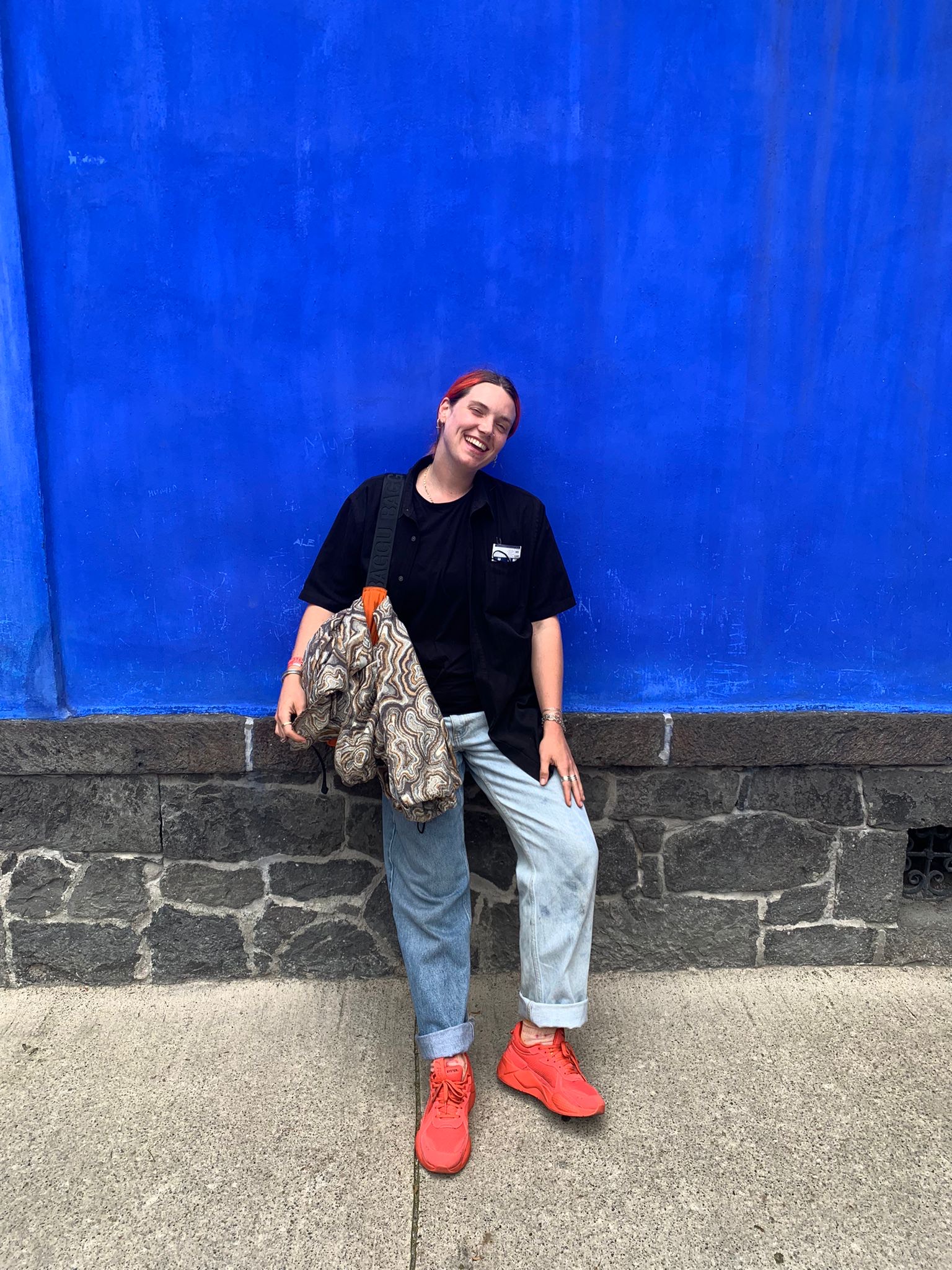 We are celebrating 35 years of Susquehanna Waldorf School this year! In honor of our 35th anniversary, we’re interviewing members of our community to share why they love SWS. Class of 2006 Alum, Lili Thomas-Brumme, sat down with us to talk about her time at SWS.
We are celebrating 35 years of Susquehanna Waldorf School this year! In honor of our 35th anniversary, we’re interviewing members of our community to share why they love SWS. Class of 2006 Alum, Lili Thomas-Brumme, sat down with us to talk about her time at SWS.
Time at SWS and where she is now...
I was a student at SWS from 5th through 8th grade and I graduated in 2006. Four formative years. Now I work as a set decorator, set dresser, and art department for film/commercial/TV in the San Francisco Bay Area.
Favorite memories of SWS?
The memories that pop into my head are very incidental times in our classroom. Of course there were the amazing field trips. We went to Rome in 8th grade which was great. Who else can say that!? But the times of just sitting and talking and playing games are my favorite memories. Mr. Martino would let us play a board game before main lesson started, and it's that kind of incidental time, growing close with people without there being too much structure, that I think of really fondly. You don’t really get that in other forms of education. There can be an expectation to be performing in a certain way but we were allowed to just be with each other.
How did SWS prepare you for your path?
Having confidence in who I am. When I was in public elementary school, it was like anybody who didn't fit the mold, anyone who didn't get these grades on standardized testing was wrong. It was all about how you performed in numbers and how you could conform. And if you didn't conform, if you were the cog that didn't fit in the wheel, it was a problem with the public school because they had to come up with a whole personalized education plan just to help you because you were the one that didn't fit. I just always felt wrong and broken in a lot of ways.
Coming to SWS, it was a total 180. I was offered support. “We are here for you and for how you grow. We’re going to work with the skills and the learning that you have and that you need and we’re going to do this together.” It wasn't just the teachers and the students. When I was having trouble in math, my teacher would take the kid who was really good at math and tell us to study together. And so it was the confidence of knowing that I wasn’t broken, I wasn’t the problem, I am strong for having the mind and the skills that I have. These are the things that make me the person that I am. For me, personally, that was huge. I say sometimes that Waldorf education totally saved my life. And it feels really dramatic but I really believe it to be true. I don’t know where I would be if I didn’t grow up having that support and confidence. I wouldn’t be where I am.
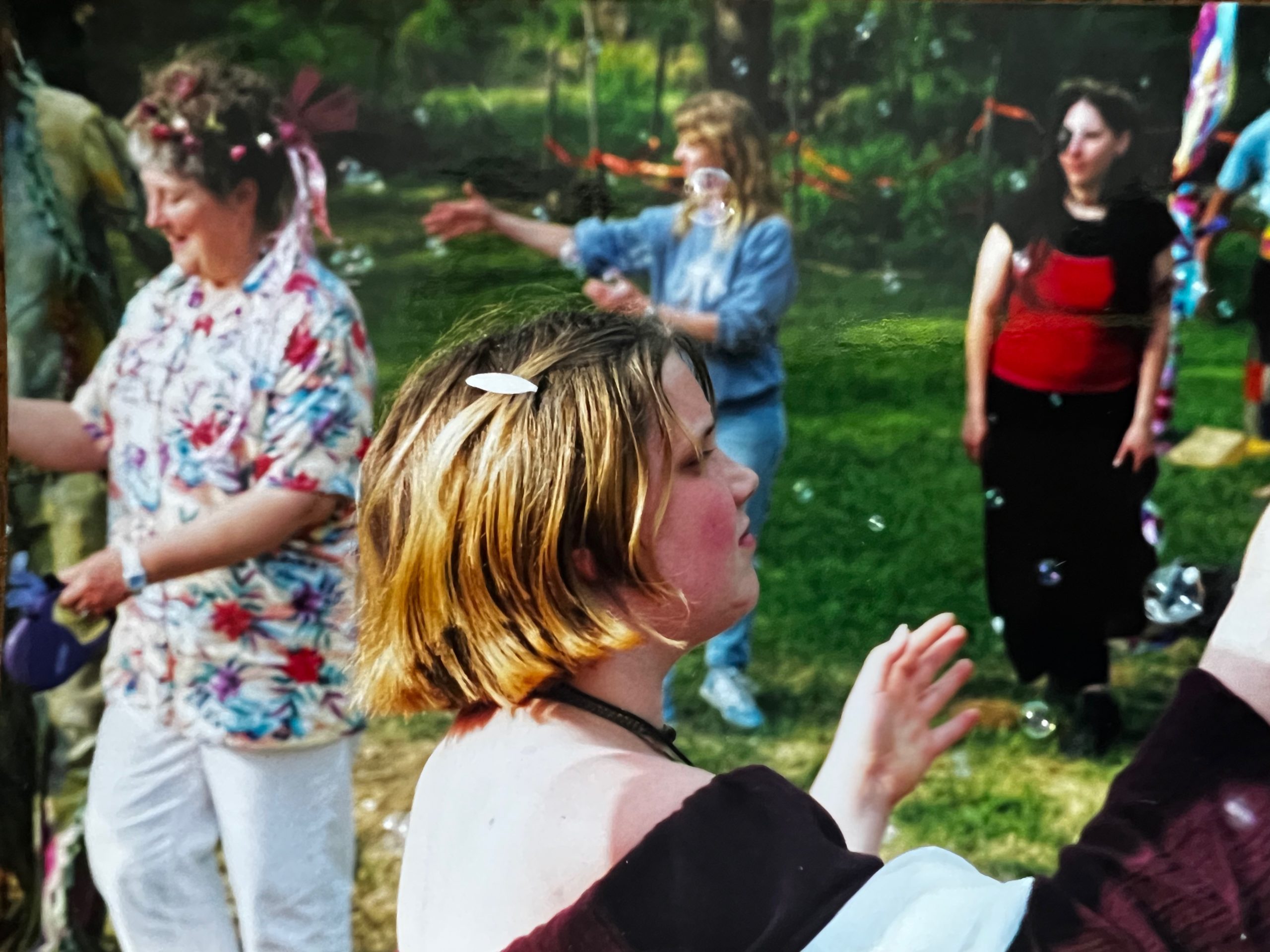
Has your perspective of your education at SWS shifted over the years?
I think even when I was at SWS, I loved it and knew that it was better than anything else that I could be doing. Elementary education ended at 4th grade at the public school I was at before SWS and three different elementary schools were combined for middle school. I was terrified. Of the amount of people, of going to a new place, and since I already had trouble in elementary school. I was told, “You can’t take a test with everyone else, we’ll send you to a different room.” I was already the weird kid. I remember telling my mom, “I am not going to 5th grade, I’m going to fail 4th grade” and she was like “hm, okay, let’s find something else.”
Going to SWS, without having words for it at the time, I remember the feeling of being alive. And, even though I couldn’t say why or what, I just felt different. I felt brighter. And I think that that perspective has gotten deeper over the years. With age, I’ve been able to actually understand and pinpoint the reasons why, and know myself in a more concrete way, this is why it worked, this is why it’s good, this is what it did for me.
What makes SWS special?
I think the community aspect of it is huge. Specifically at SWS because it’s so small and concentrated. It was really amazing to be there and to know people so deeply. The community and the support to grow into who you’re meant to be and how everyone is supporting each other doing that is so special. On a broad scale of Waldorf education, when I meet another Waldorf kid out in the world, we’re both like “Wowwww!!!” Even from an entirely different state, there’s a deep level of connection. Individualism is a very American perspective, like "head down, concentrate on your own, take care of only yourself," and Waldorf education teaches something different from that. It's about bringing people together.
Hippity Hoppity Hoo! Welcome Baby Landon & Bunny Nora!
Written by Dandelion Kindergarten teacher, Nikki Hill.
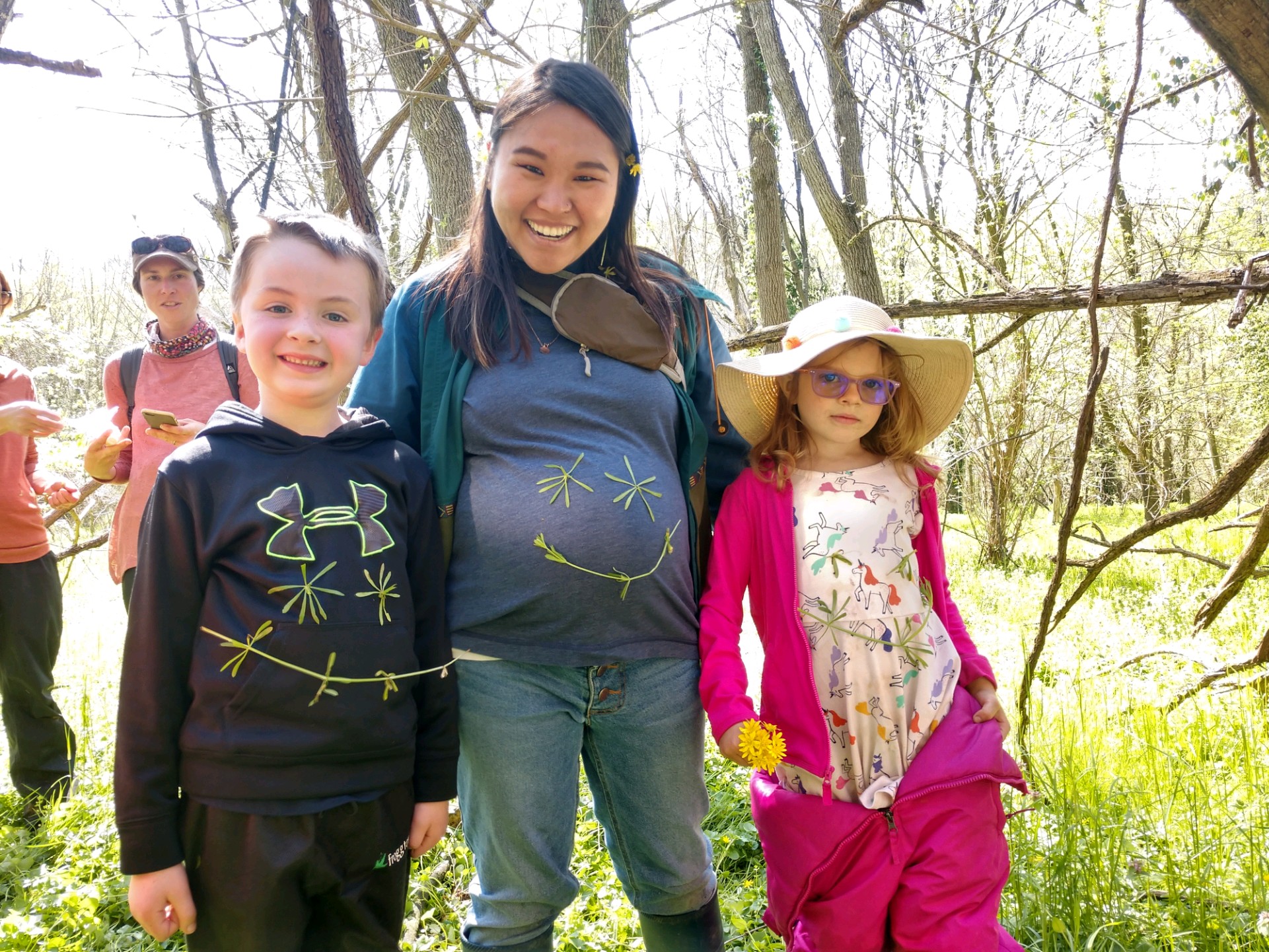
What a fun and exciting time for the Dandelion classroom. So many babies were born, making some of our classmates big brothers to little sisters and others big brothers to little brothers. It has been a joy to welcome new life into the world and into our hearts.
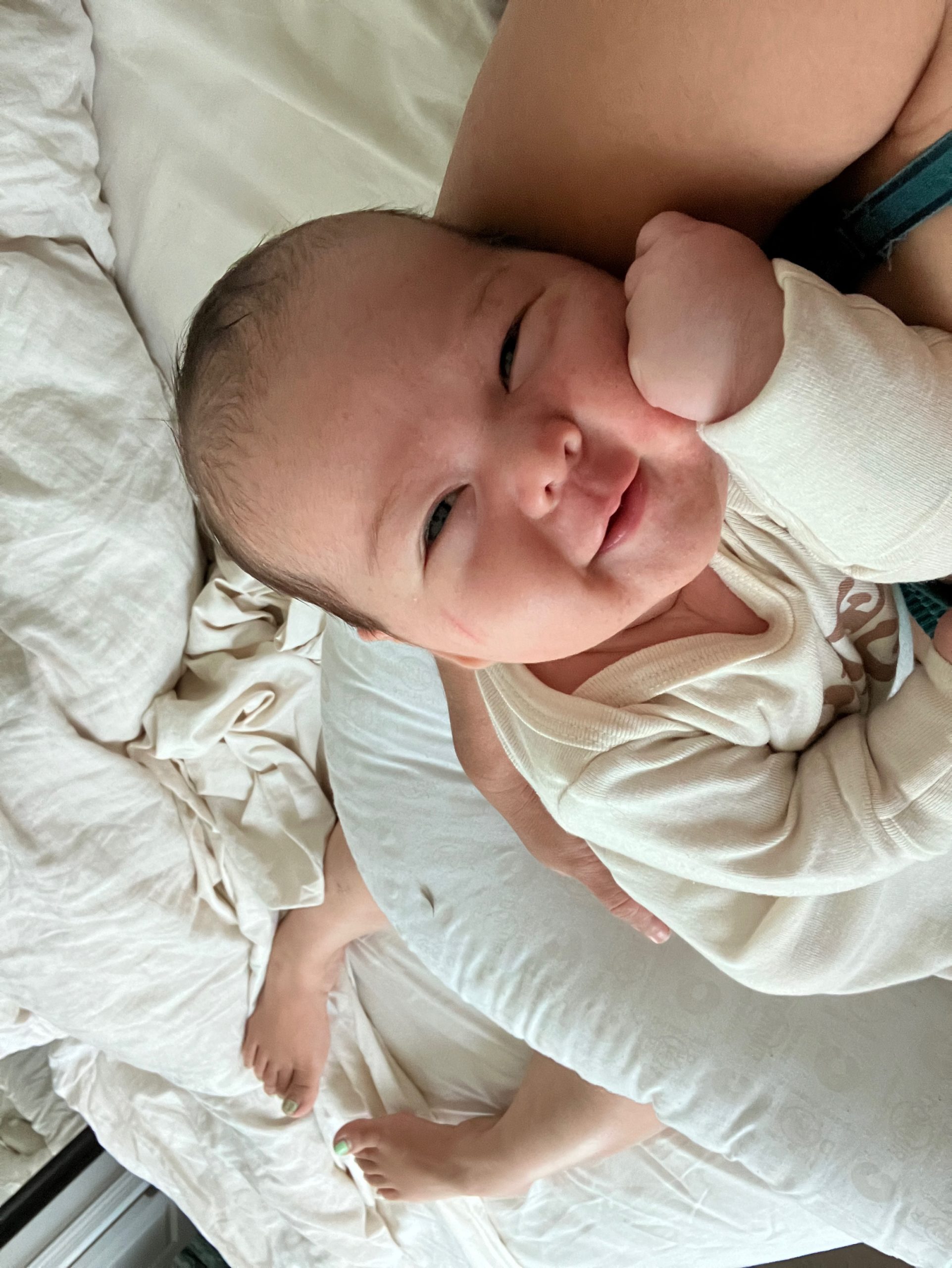
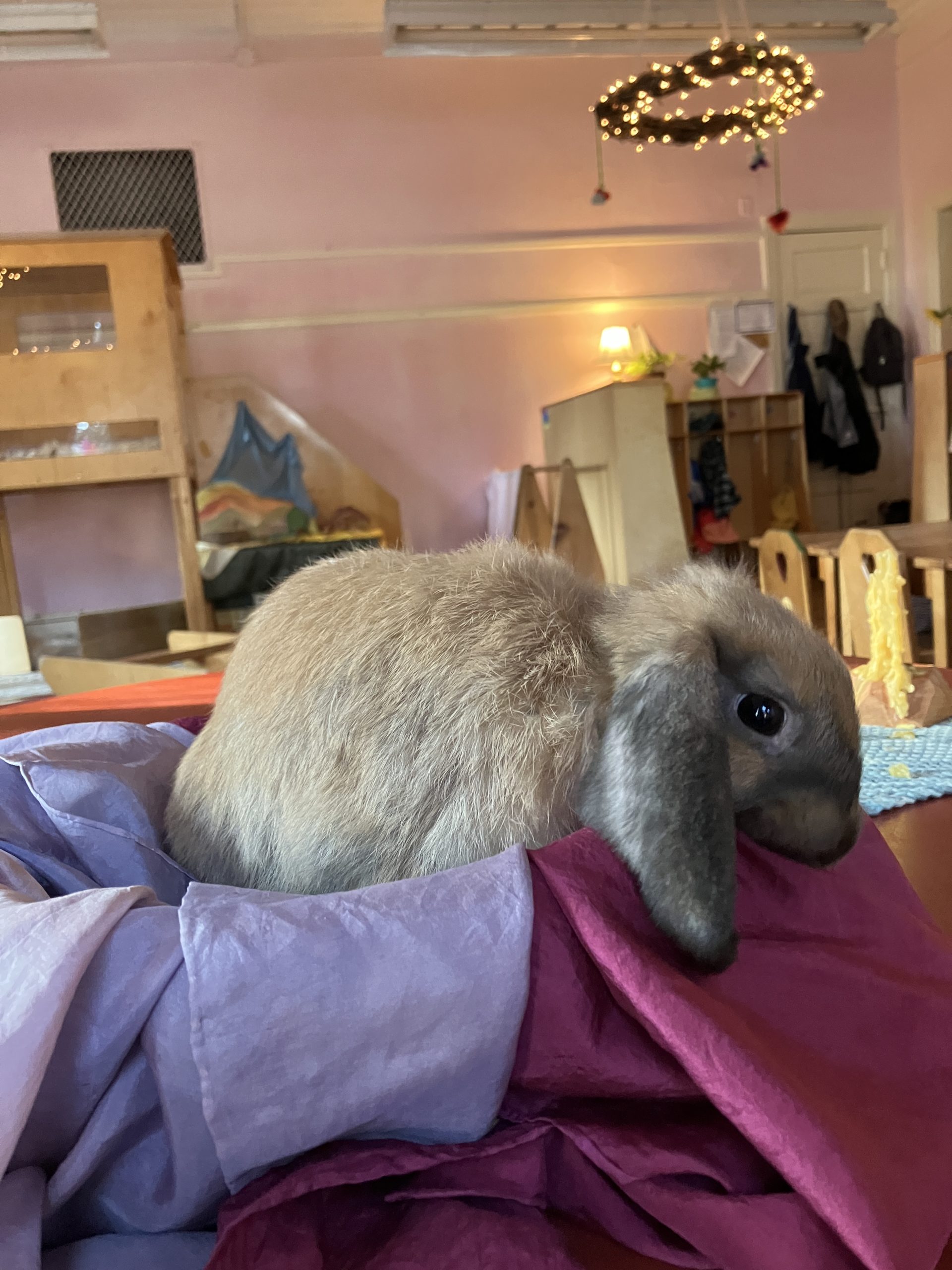
Welcome to the newest members of the Dandelion classroom: Miss Nikki's son, Landon, and Nora, our baby bunny. Although Landon does not come to the classroom very often, all the children saw Miss Nikki's tummy grow and grow and grow throughout last year's adventures and now there is a little picture of Landon in the classroom that the kiddos can see. The other exciting member has been our dear baby bunny, Nora. Nora has been enjoying all the snuggles, pets, and treats the kiddos have been giving her on a daily basis.
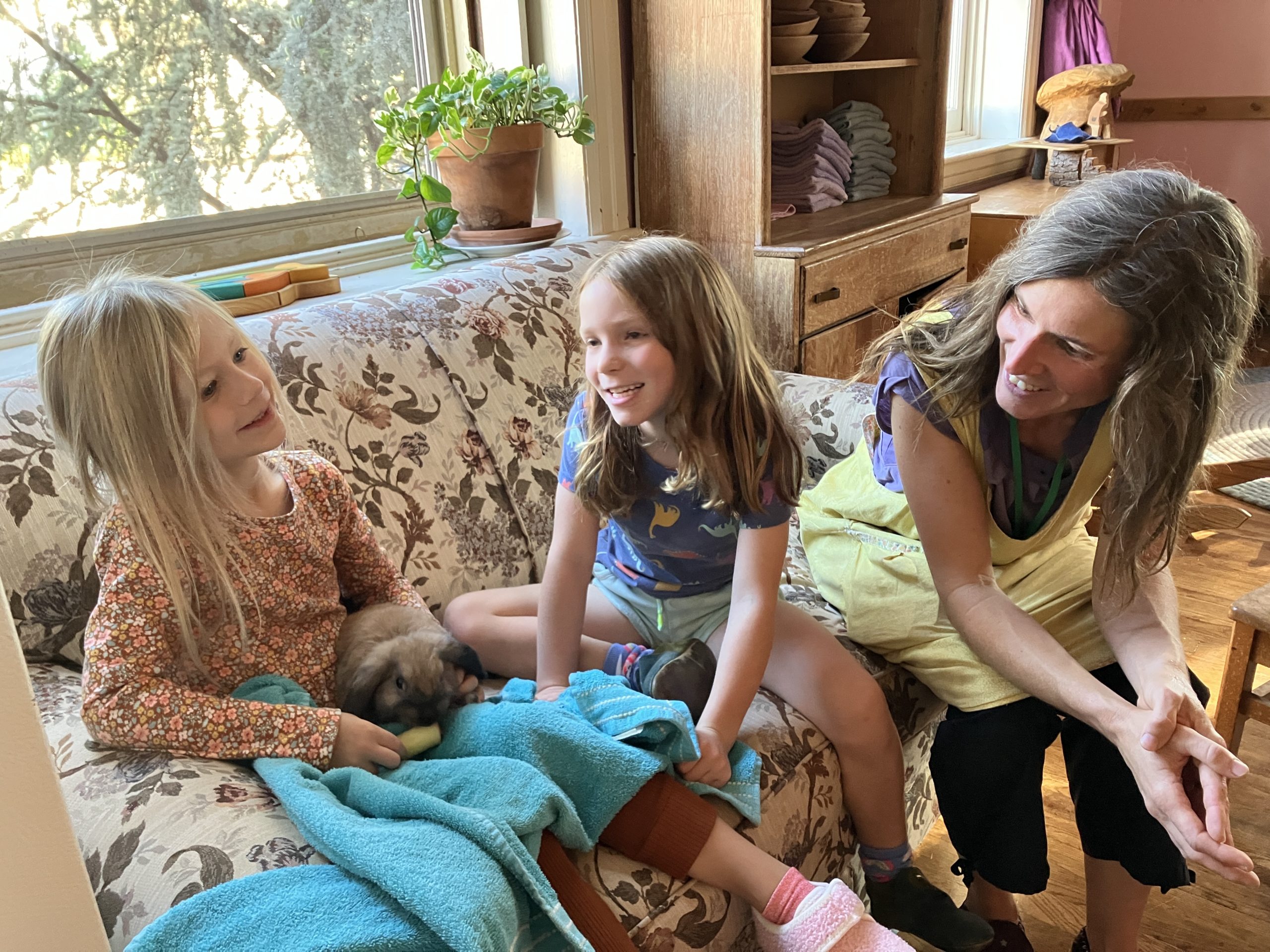
Nora's favorite day so far has been Tuesday soup day because she is almost guaranteed to get a nibble of a juicy carrot or some little scraps of sweet potatoes that have escaped the chopping board and made their way to the floor. She also likes when the children all snuggle up on our new couch in the classroom and give her lots of love and sweet snuggles. Most mornings she is freely hopping around the Dandelion classroom, exploring all the toys, nooks, and crannies, just like the Dandelion children are. At circle time, she sometimes observes the children from her high perch in the loft looking out over us, ensuring that we are using our sturdy feet, kind hands, and beautiful singing voices. Nora is quite the explorer and loves visitors and snuggles. If you ever want to say hi to her and give her some pets, snuggles, and love, please let Miss Nikki know and she would be happy to have you visit.
Looking Into the Mirror: A Peek Into the First Weeks of 2nd Grade
Written by Second Grade Teacher, Michele Calabretta.

Second grade is a busy time for a young child! We are beginning to read and to approach math with much larger numbers, while (constantly) questioning the duality of life! This can be cumbersome for some adults, so just imagine being a 7 or 8 year old without all of the context of an adult. How on earth do we approach this with such young, energetic, and eager beings? Well, we sing and dance to help settle the soul. We do our very best to work together, in unison at times and, at other times, as an opposing reflection or mirror. What better way to learn than from our own life lessons or from observing lessons learned by others! Admit it, when someone else makes a mistake, it’s much easier to call out their mistake than to recognize when we ourselves have made one. By the end of second grade we hope to be able to do both but with grace, acceptance, and, perhaps, a helping hand. However, it’s only week four so back to learning we go!
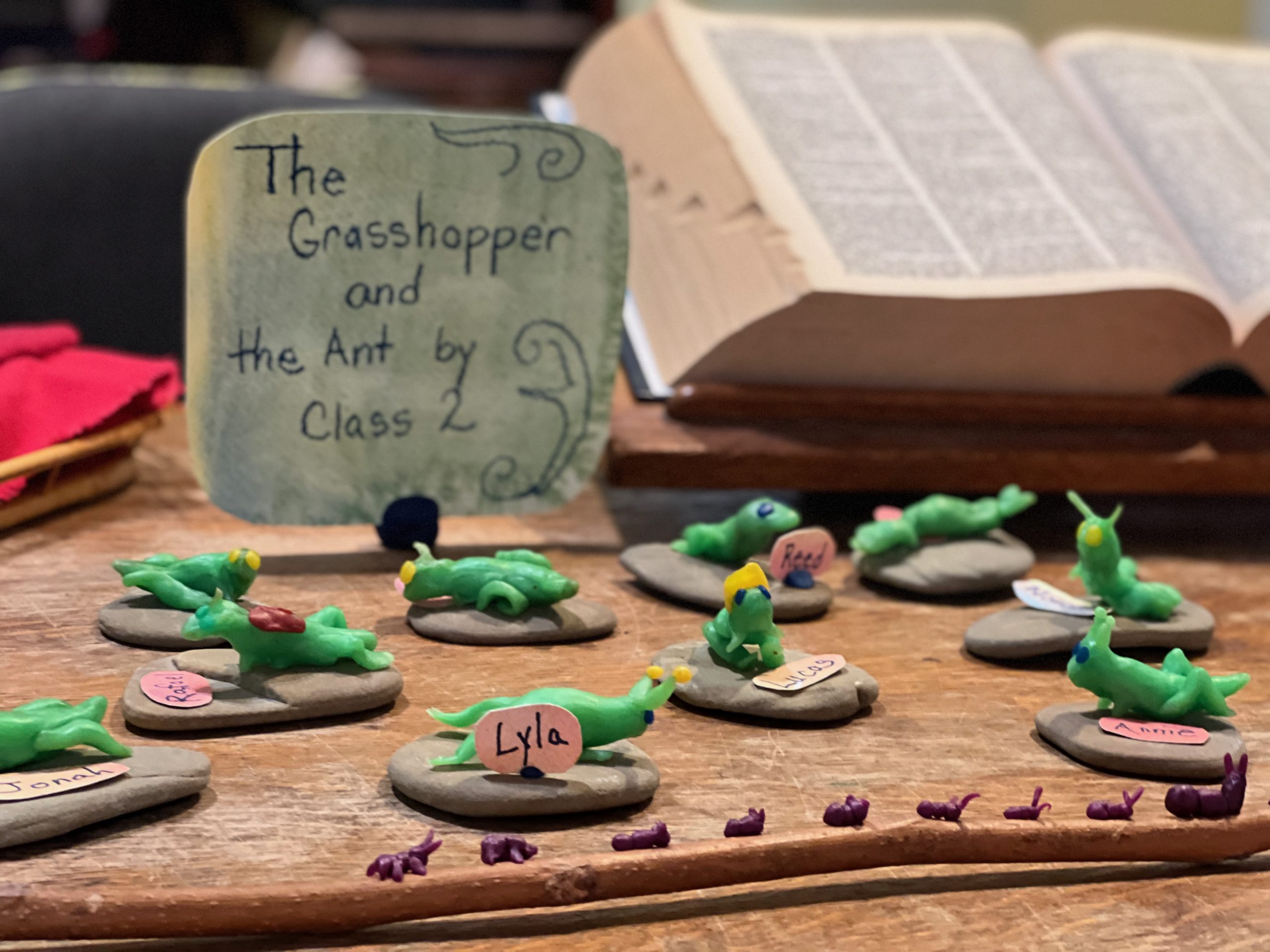
In Waldorf education, fables are told to illustrate the extremes of folly in our lives. What happens when one doesn’t prepare ahead for a deadline? Well, if one is a grasshopper who played a fiddle all summer, one might find oneself very hungry and envious of the industrious ants when winter arrives. We gently see the mistake by observing such folly in these animal fables. “Poor silly grasshopper, why didn’t he do a little work instead of play all day?” The questions and giggles and accusations come out verbally and in fun. However, the lesson is also taken inwardly and can be a good reference point later when a human situation arises for us on the playground or during a class. After writing the story in our Main Lesson books and illustrating the main idea, Class 2 set to work on creating the story with beeswax figures - tiny fingers can make such tiny ants!
35th Anniversary Spotlight: Alum Noah Fitz
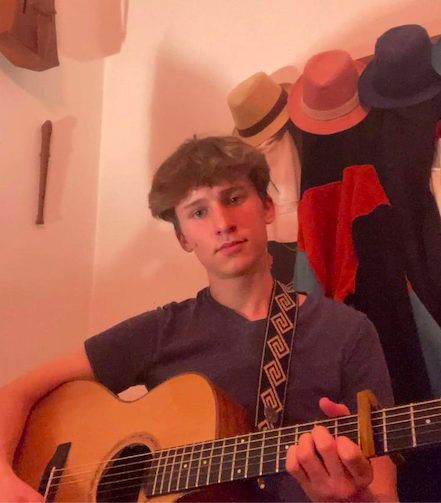 We are celebrating 35 years of Susquehanna Waldorf School this year! In honor of our 35th anniversary, we’re interviewing members of our community to share why they love SWS. Class of 2019 Alum, Noah Fitz, sat down with us to talk about his time at SWS.
We are celebrating 35 years of Susquehanna Waldorf School this year! In honor of our 35th anniversary, we’re interviewing members of our community to share why they love SWS. Class of 2019 Alum, Noah Fitz, sat down with us to talk about his time at SWS.
Time at SWS and where he is now...
I started at SWS in kindergarten and went grade through grade up until 8th grade. I graduated from SWS in 2019. Now I am in Donegal High school going into my senior year and proceeding to college soon which I greatly look forward to. So big steps ahead and a big past here.
Favorite memories of SWS?
I have a lot. What pops into my head most recently is our Bahamas class trip with our class and our teacher. There are so many memories from that trip but I remember playing cards below deck while traveling in this picture perfect scenery that you could only imagine. We had such a close knit group and it really impacted my experience at Susquehanna Waldorf School.
I don’t think I can bond with a group more than I bonded with my classmates. I have extremely close connections to a lot of them. Some of us have gone our own ways but the majority of us have stayed closely connected. We still do, 3 or 4 times a year, big get togethers as a group to maintain our friendships. I think they’re here to stay. That’s a powerful thing to have growing up. The same group of people who were always with me throughout my education. The ways we connected at SWS were not solely through education but also through the play that Waldorf education introduces. It wasn’t just education time and play time. It was a mix of both through the education, through experiments, and hands on learning that we got to know each other and got to know our teacher. We grew as a group through learning, through playing, and through the combination of both.
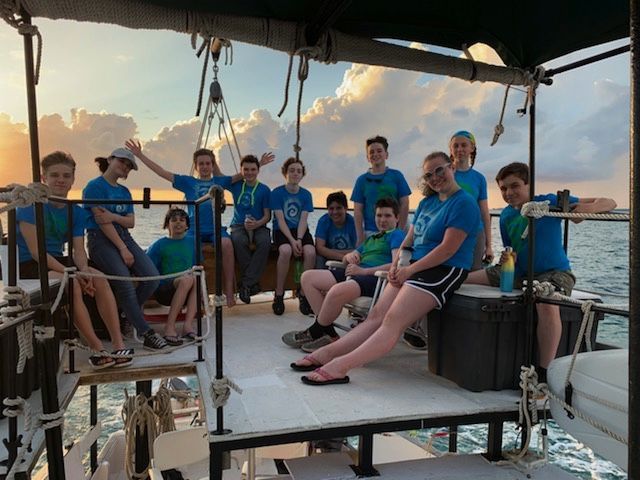
How did SWS prepare you for high school? How has it impacted your college application process?
Going from Waldorf into high school was a scarier transition in thought than what it actually turned out to be. I was afraid that I wouldn’t know anyone. I was afraid that I wouldn’t get along with anyone. I realized that it depended on me too. I was taught through Waldorf to put my skills and interests to work and it took me awhile to remember that but in 10th grade, once COVID was kind of wrapping up in our education at Donegal, I utilized my many resources in clubs and classes. I found out how I can get engaged in the education. SWS prepared me for this by having an open mind and teaching me that I have a wide range of skills that don't pertain to one academic interest or one skill set. I can be an artist and I can be a mathematician. I can be into science but I can also love English. So much beyond that, Waldorf taught me to get engaged and explore my interests. So when I started taking advantage of that opportunity in high school, I found myself much more accepted and accepting of myself at this new location.
The way Waldorf education is projecting me toward college is a different topic in its own. I see myself learning, through high school and my experience at SWS, what way I learn best and what way I can best achieve my goals and be successful. That has helped me look for a school with a certain value set that is very closely connected to how Waldorf education shaped me. I'm able to see all of the potential I have to further my academic interests through the teachers at SWS, being a well-rounded person, and trying to utilize everything I have.
Do you know what you'd like to study in college?
I don’t want to speak for everyone but going towards college, we think about what major we're applying to. So many of my Waldorf classmates agree with me that it’s hard to pick one. I see my peers in public school go through their high school experience knowing what they want to do, "this is what I’m good at, this is what I’m going to pursue." There is a thought process that you have to focus on one area to be successful and have one career. Waldorf teaches us to think with a different perspective. We can do so much more beyond just what we're good at. Therefore, I am very much undecided, but I have so many interests that I’ve thought about and explored in the colleges I’m looking at such as finance, economics, international studies, and, even, fashion design.
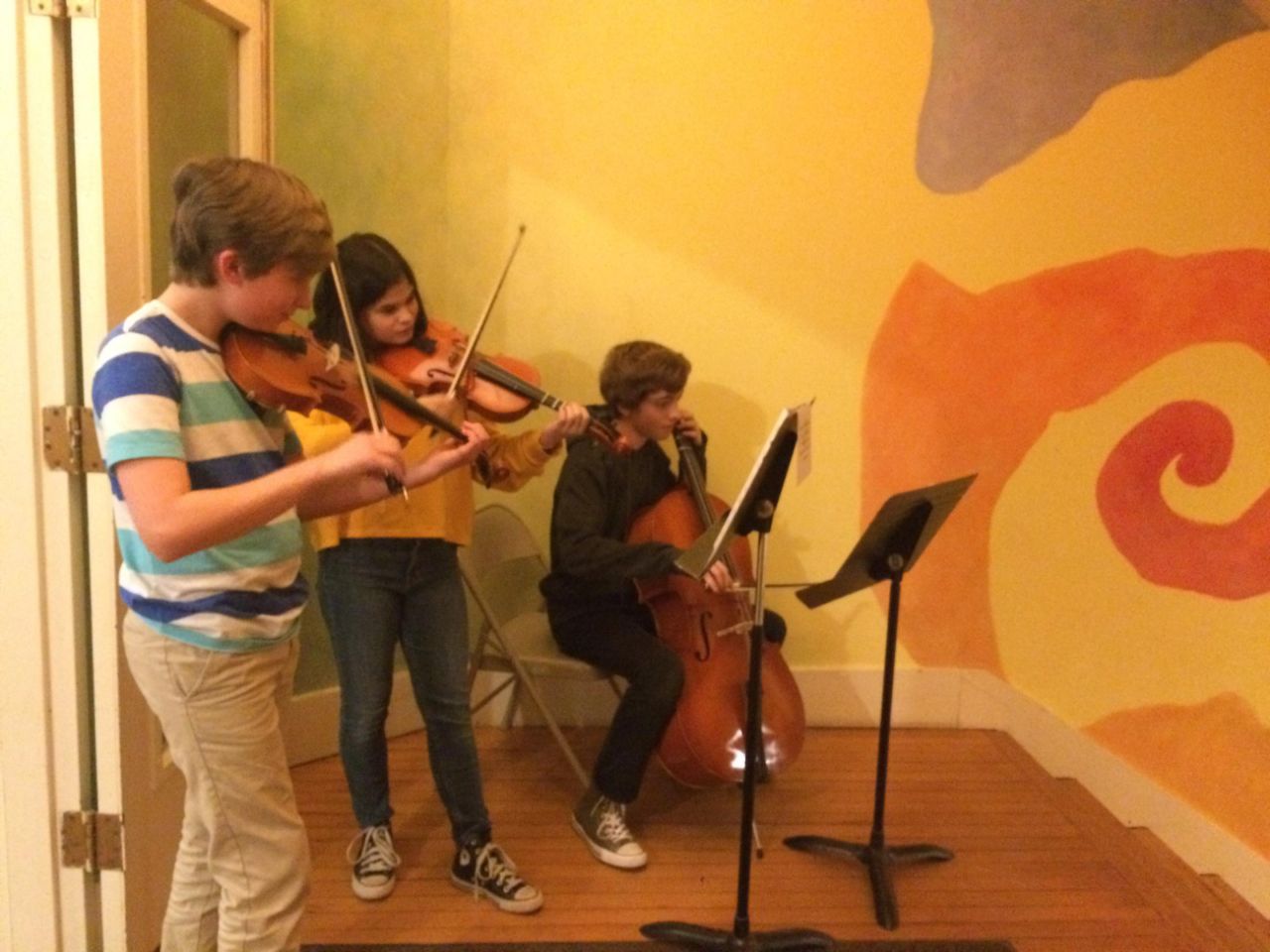
What is your perspective on your Waldorf education years since entering high school and preparing for college?
I’ve grown to become proud of the educational background that Waldorf provided me. Not to boast about it but to accept that the education I was given is so valuable to me as an individual. For some it doesn’t work but for many it does. And for everyone it does, we can really appreciate it. Through time I’ve acknowledged that learning in a small community has been so evident in my life. I’m always drawn back to one. No matter what it is, I always want that small community. I try to make them, I try to build them, I try to make these connections wherever I am. That’s an aspect of my education that I’ve grown so appreciative of through my reflections.
Another strange little thing is the importance of a simple greeting. Shaking one’s hand and an intentional greeting at a door, at a threshold of meeting someone, is a very simple tradition. We greeted our teacher every morning at SWS and it has taught me a lot about the professional world. Not only that but simple relationships and communications basics that have helped me along my path in high school. The appreciation for all of the things that I learned is growing and I think it will continue to grow.
It’s a big part of my applications for college. It’s a big part of who I am and it always will be. That's why I’m tying it into my resumes and introductions as I apply for college. Waldorf education has made me a different person from who I would’ve been. Respecting and appreciating that has been a big part of understanding the difference between my experience in public high school and Waldorf education.

What makes SWS special?
I think the biggest thing that stands out to me is the small class size that follows along with one teacher from grade one through eight. That community and connection between the 12 of us and our teacher that waxed and waned throughout the years was something so unique to Waldorf that I don’t know who I would be without it. It’s a funny thing to know your teacher so well that she knows exactly who you are, how you learn, how you play, how you socialize, how you interact with your education and with your environment. That teacher aids you and caters her/his/their ability to your best learning interests. Not just so we’re the most successful but to challenge us and become our best as a person. Through this interaction, we grew, got to know each other and have stayed connected, me and my teacher as well as my class. I think it’ll always be a connection that I cherish and value. So through this eight year long journey with my teacher, that’s what makes Waldorf so very special and unique to me.

